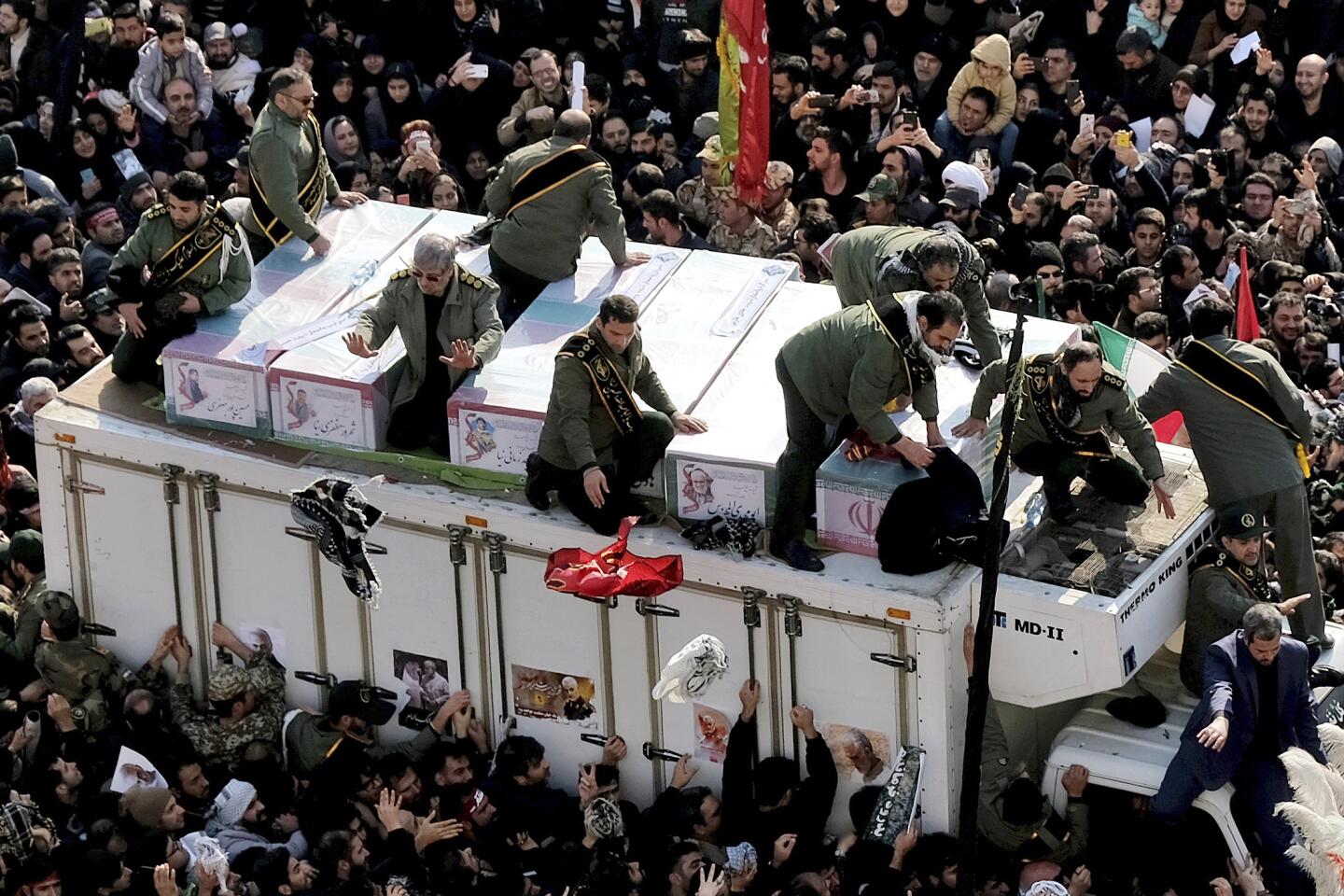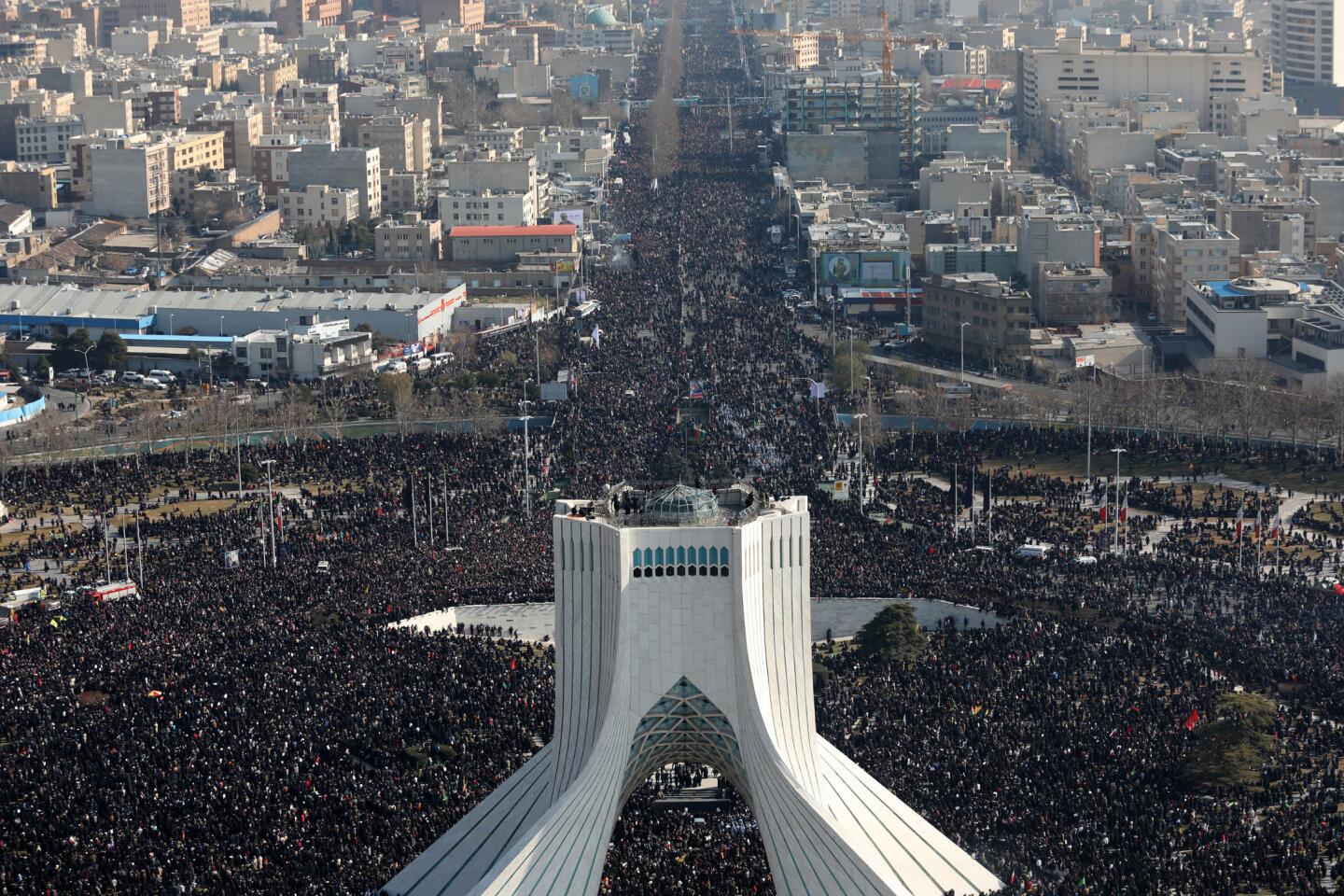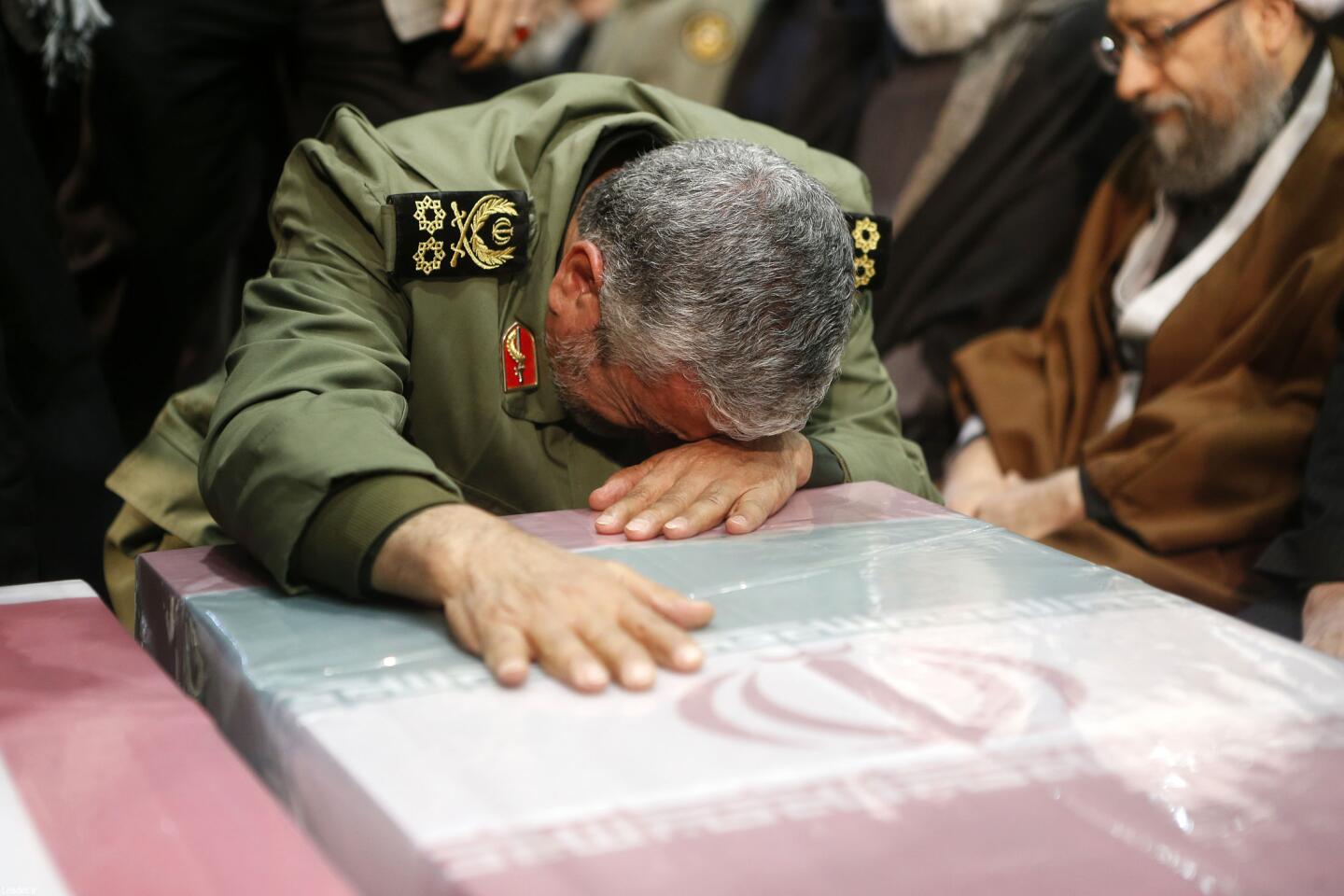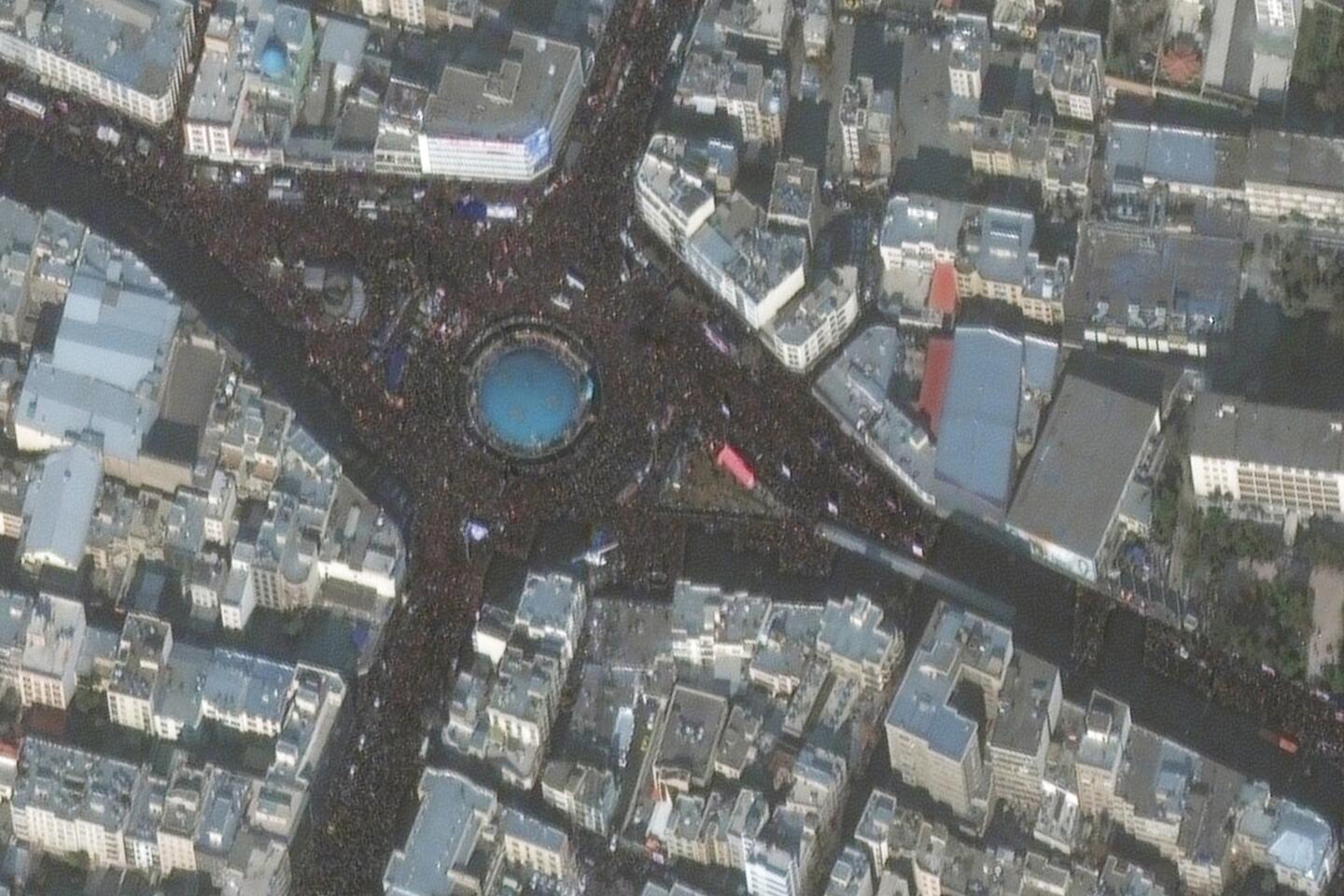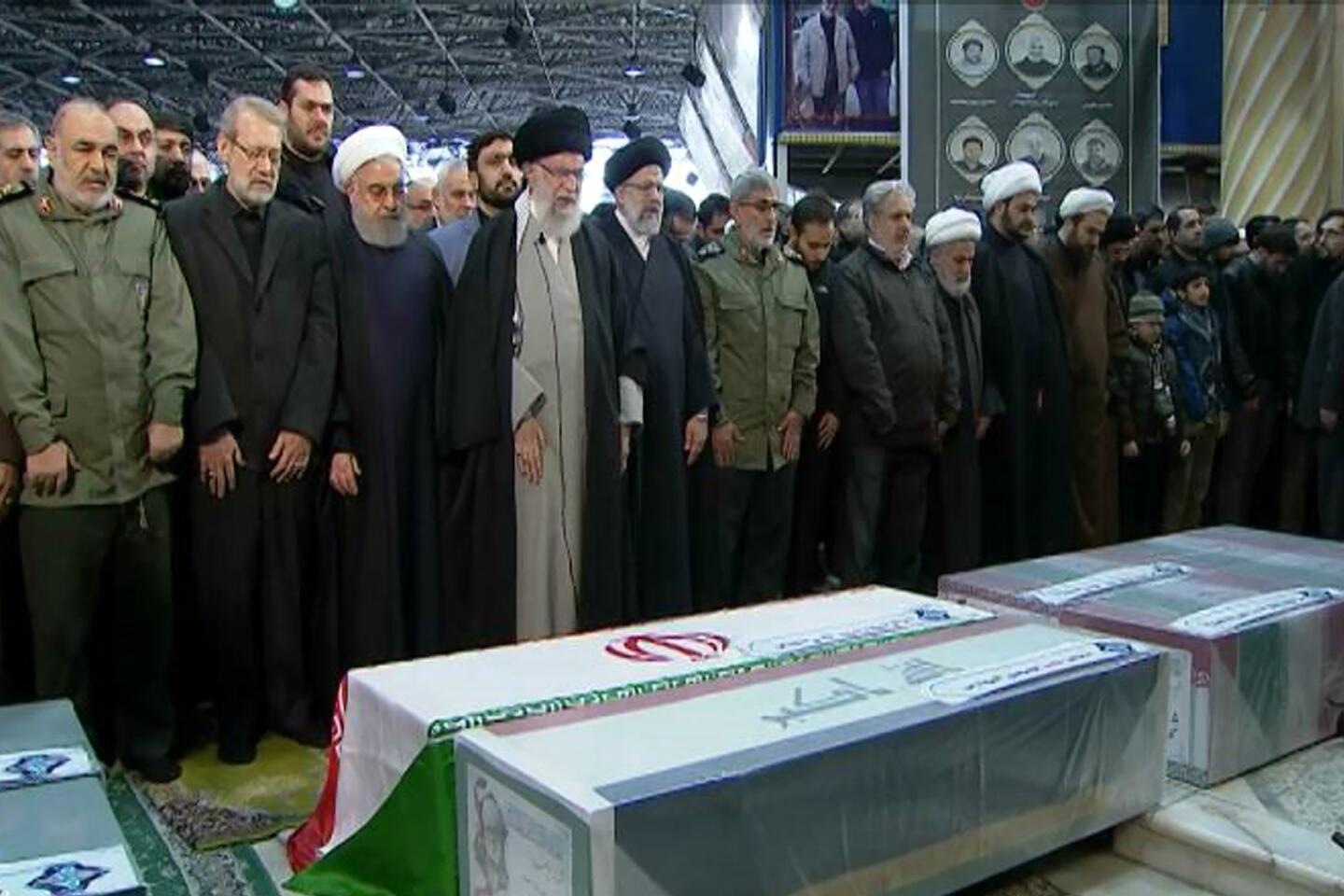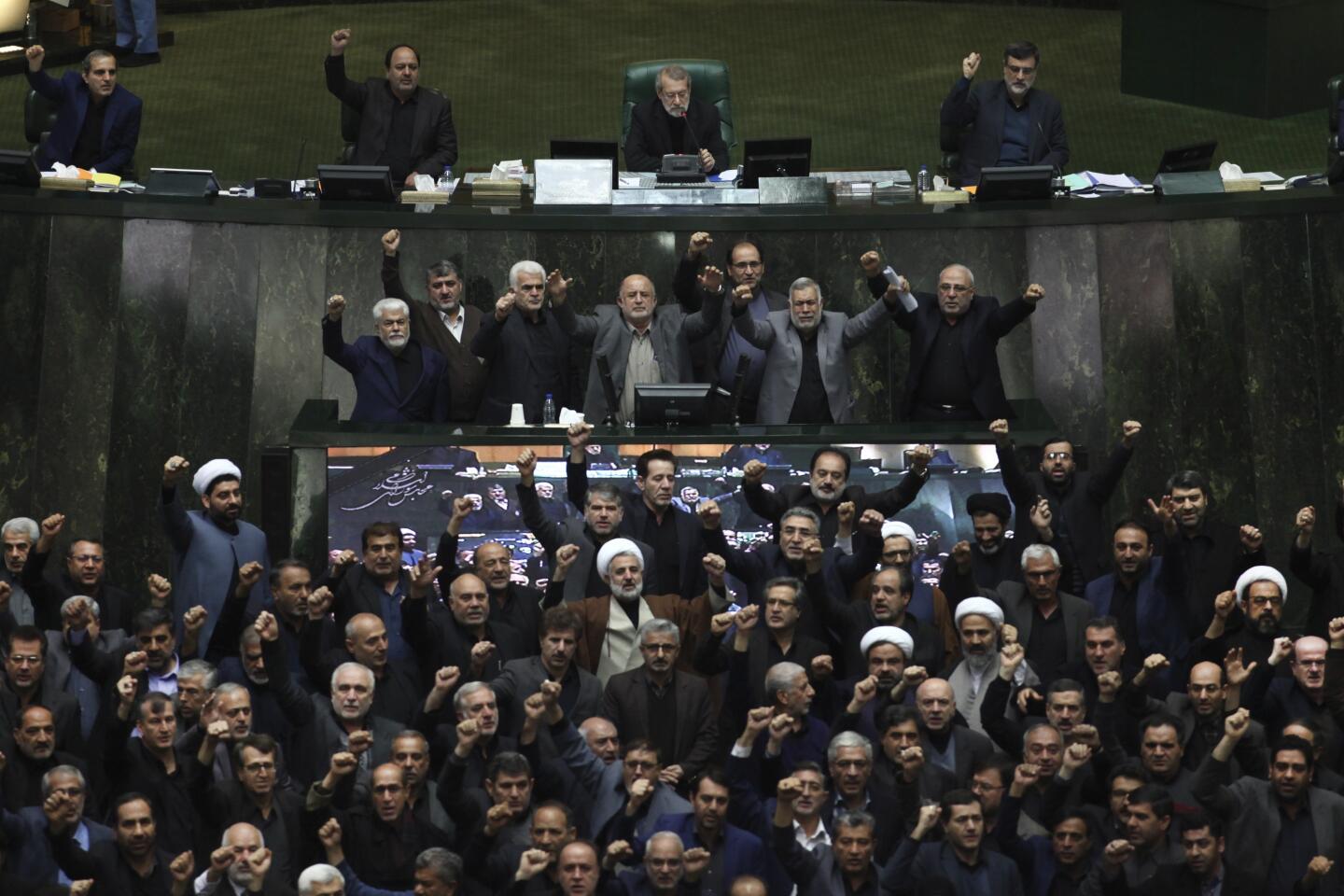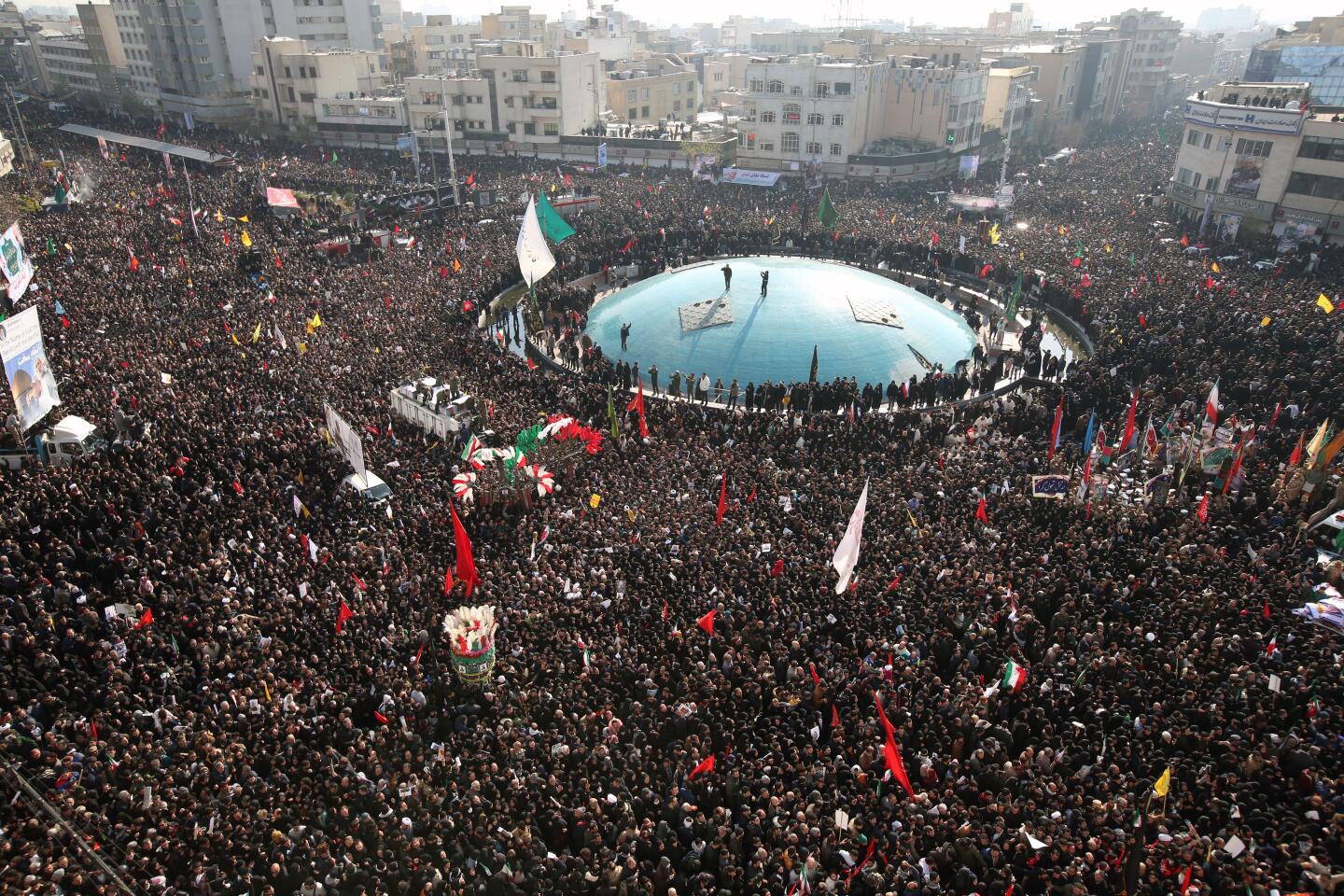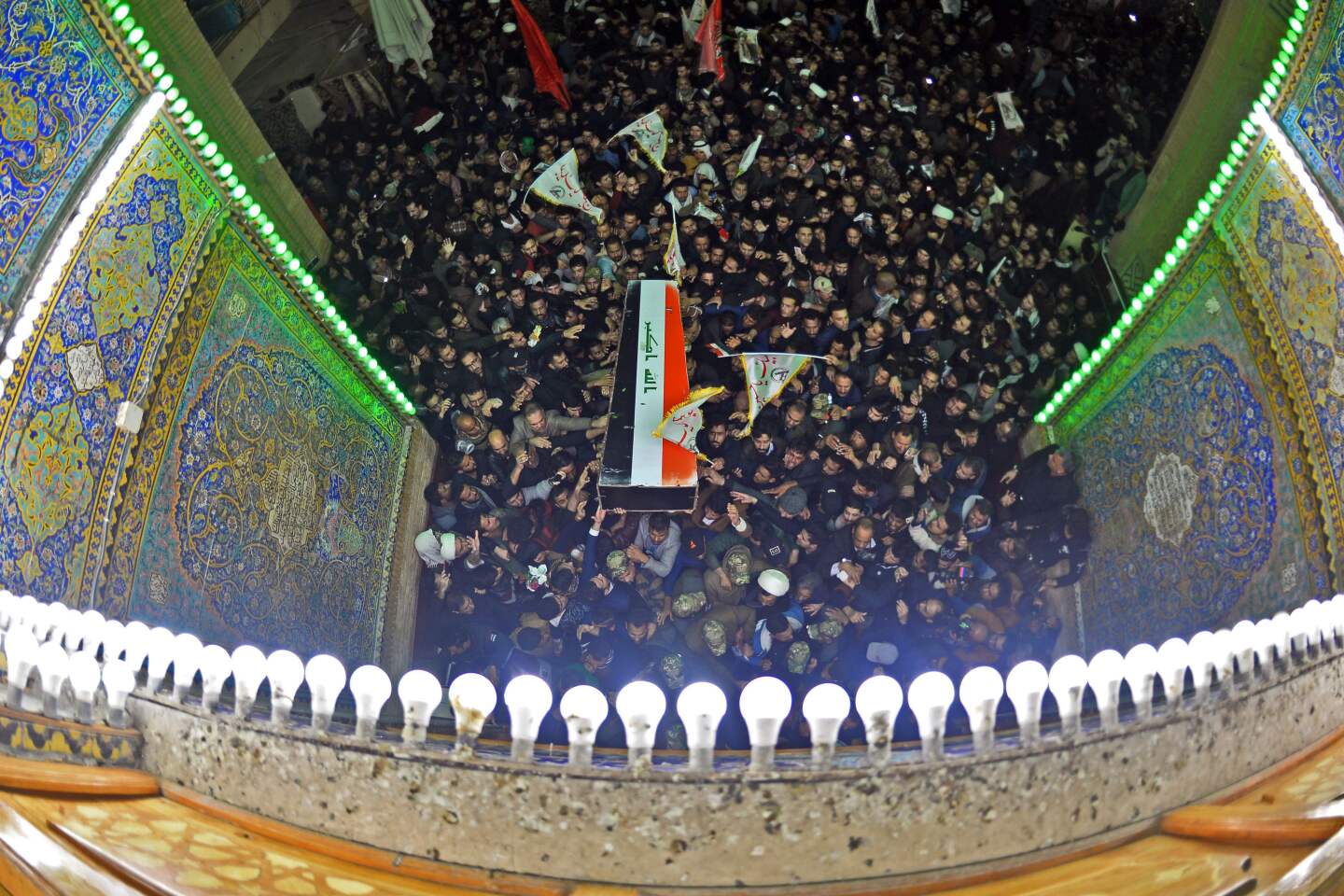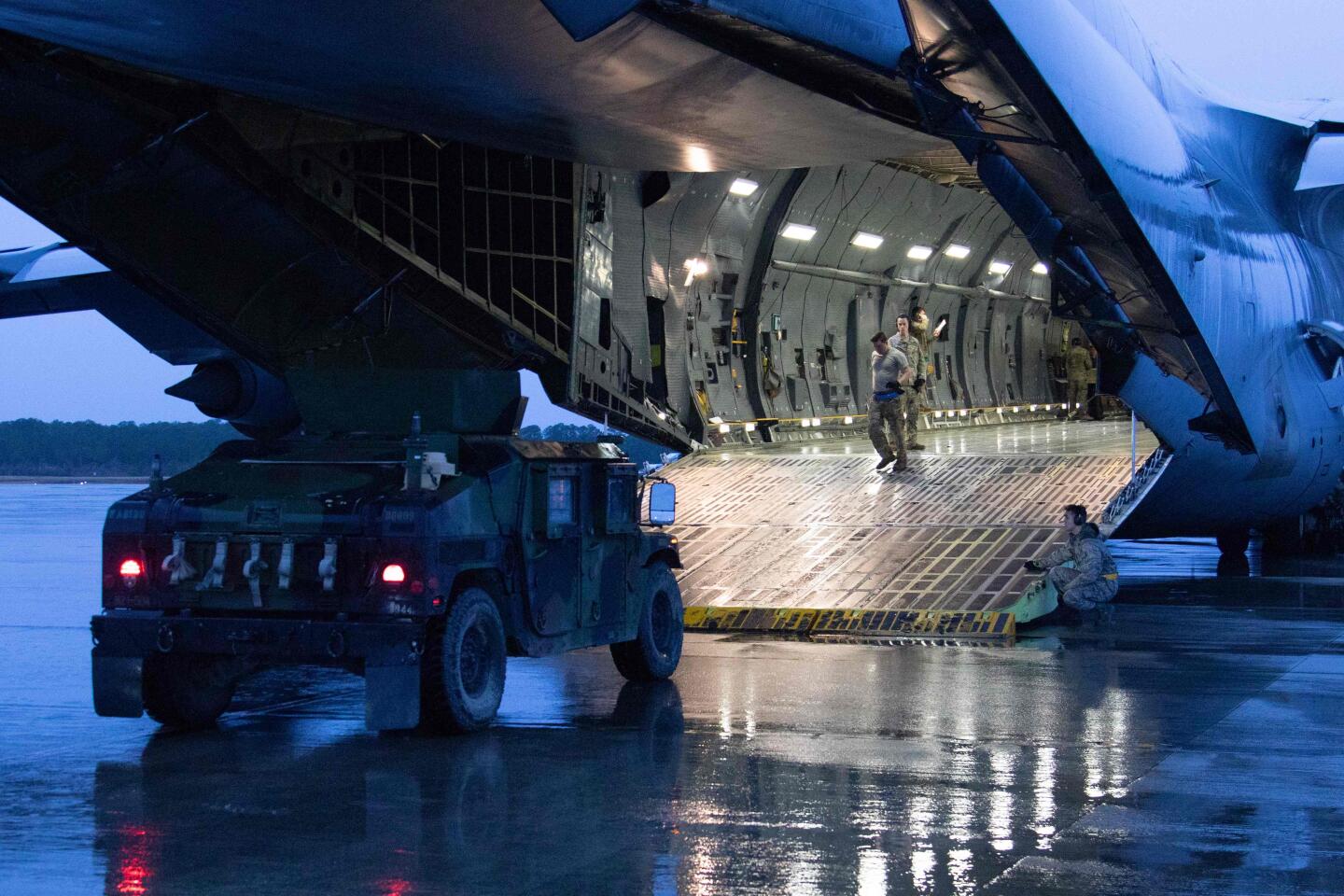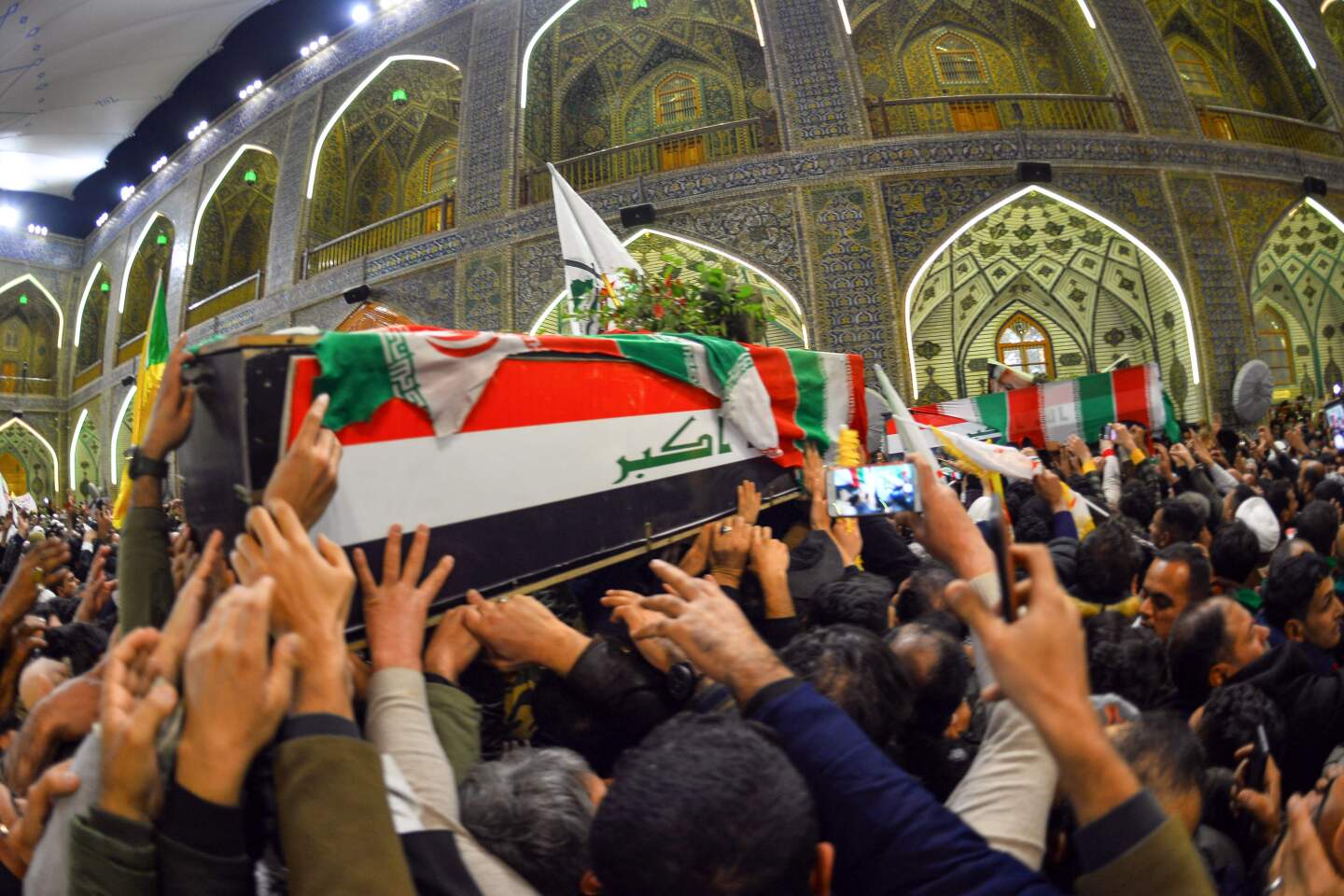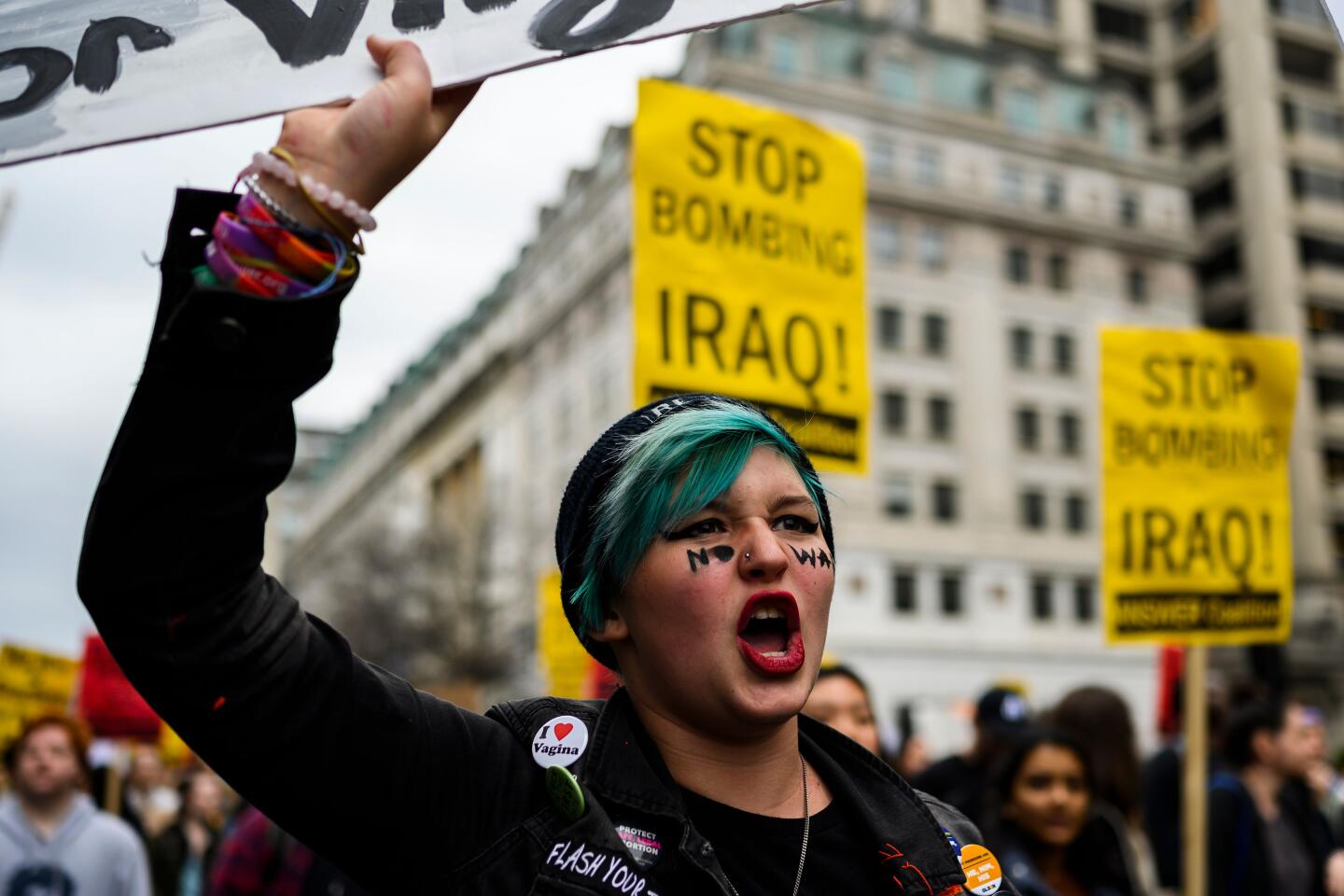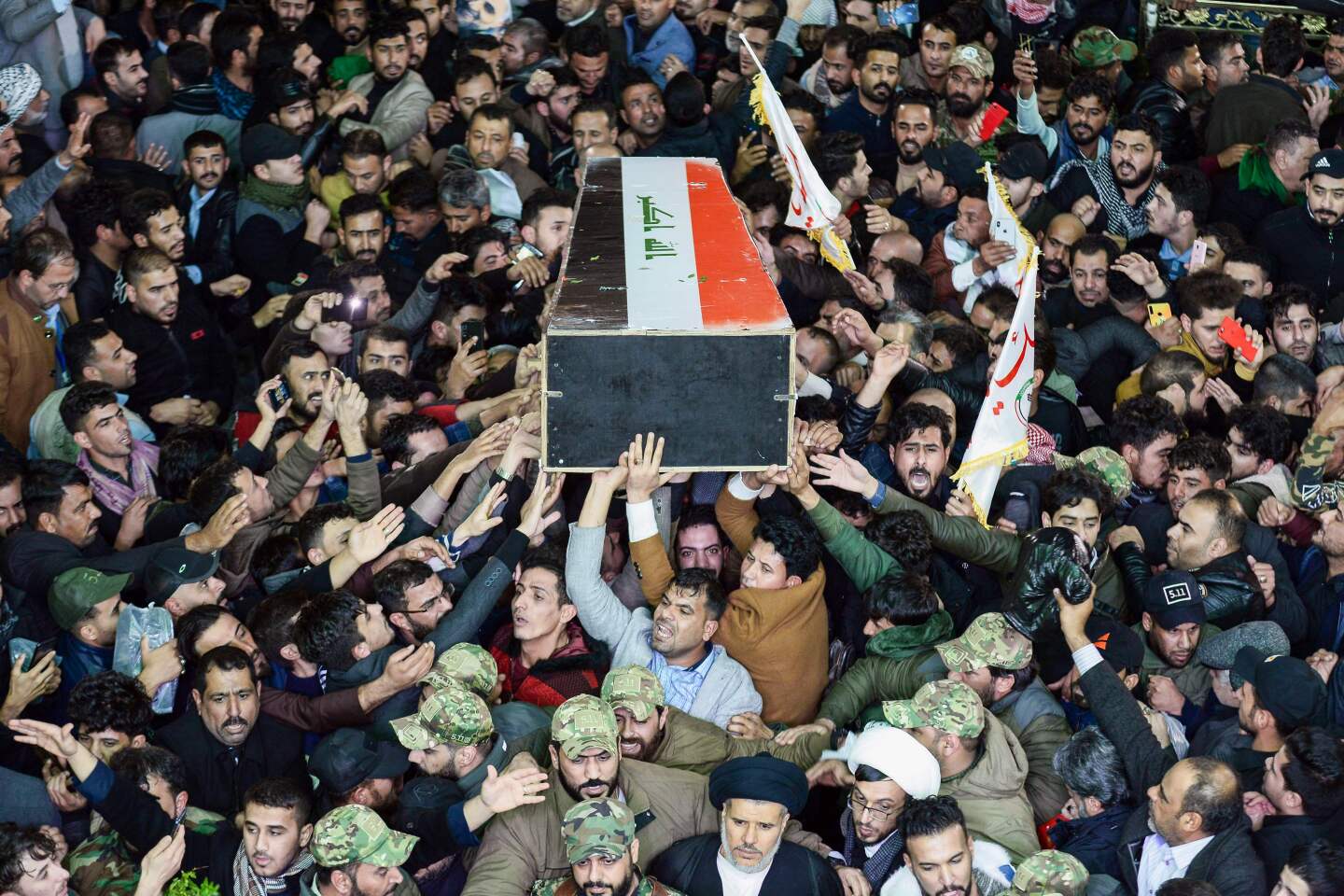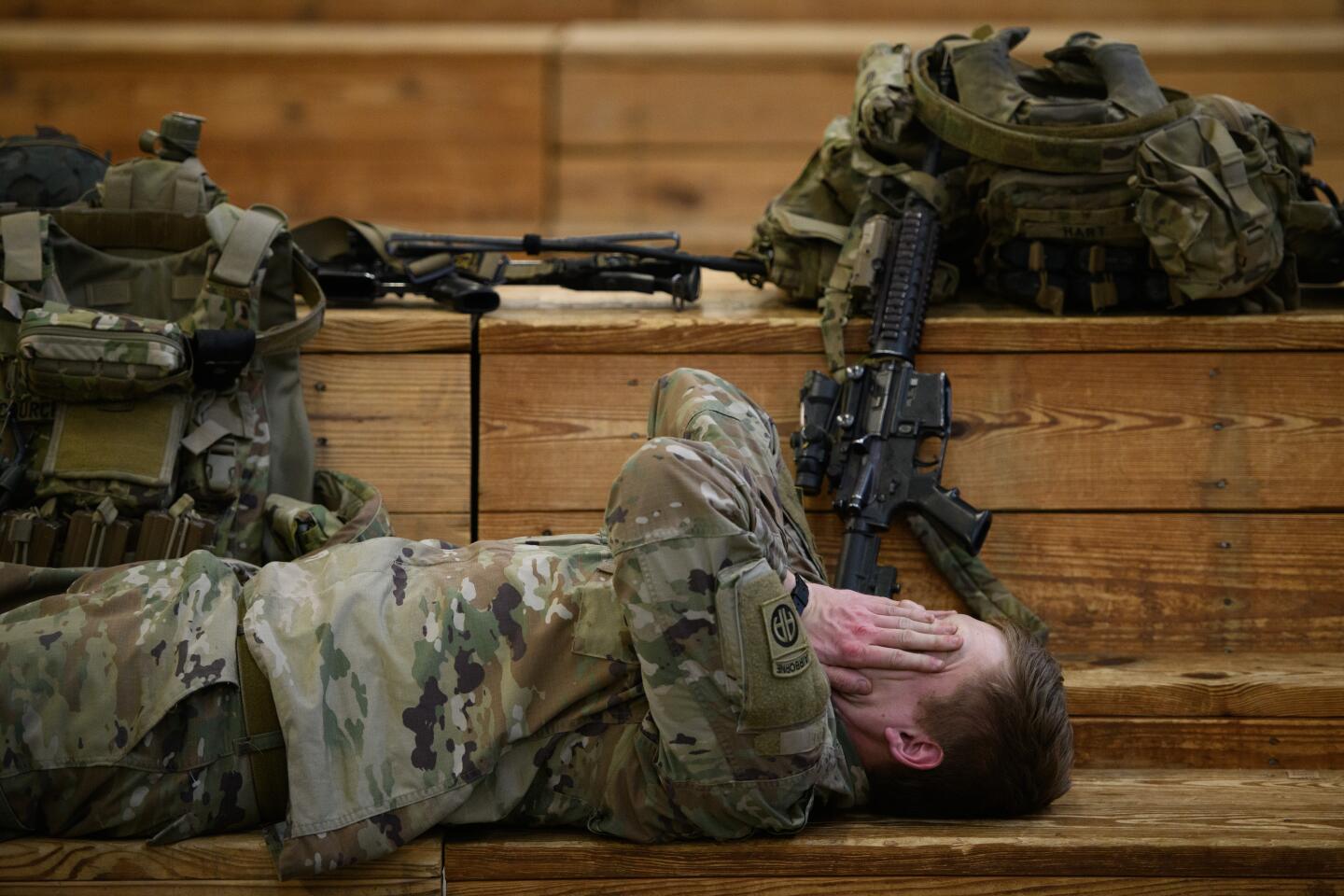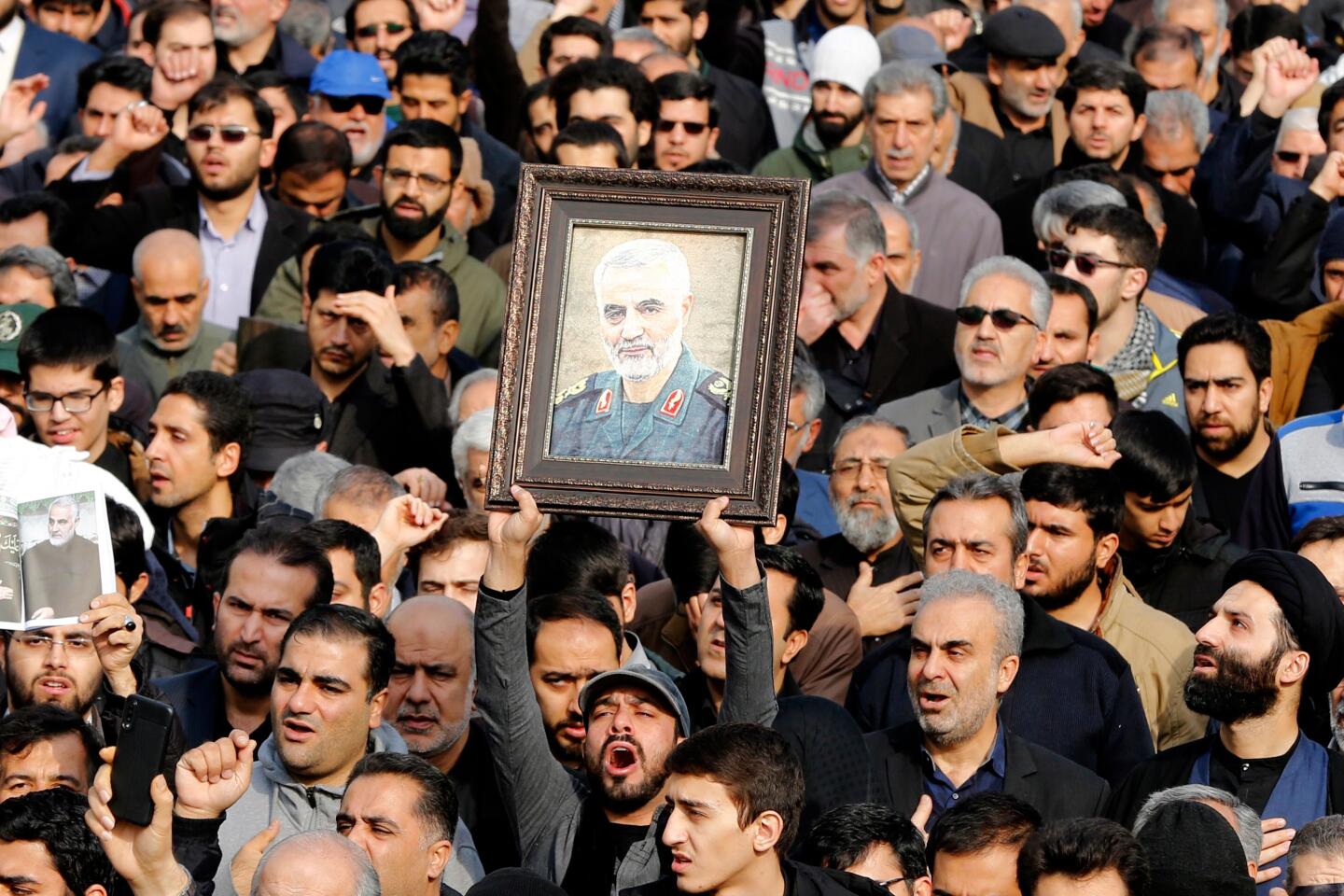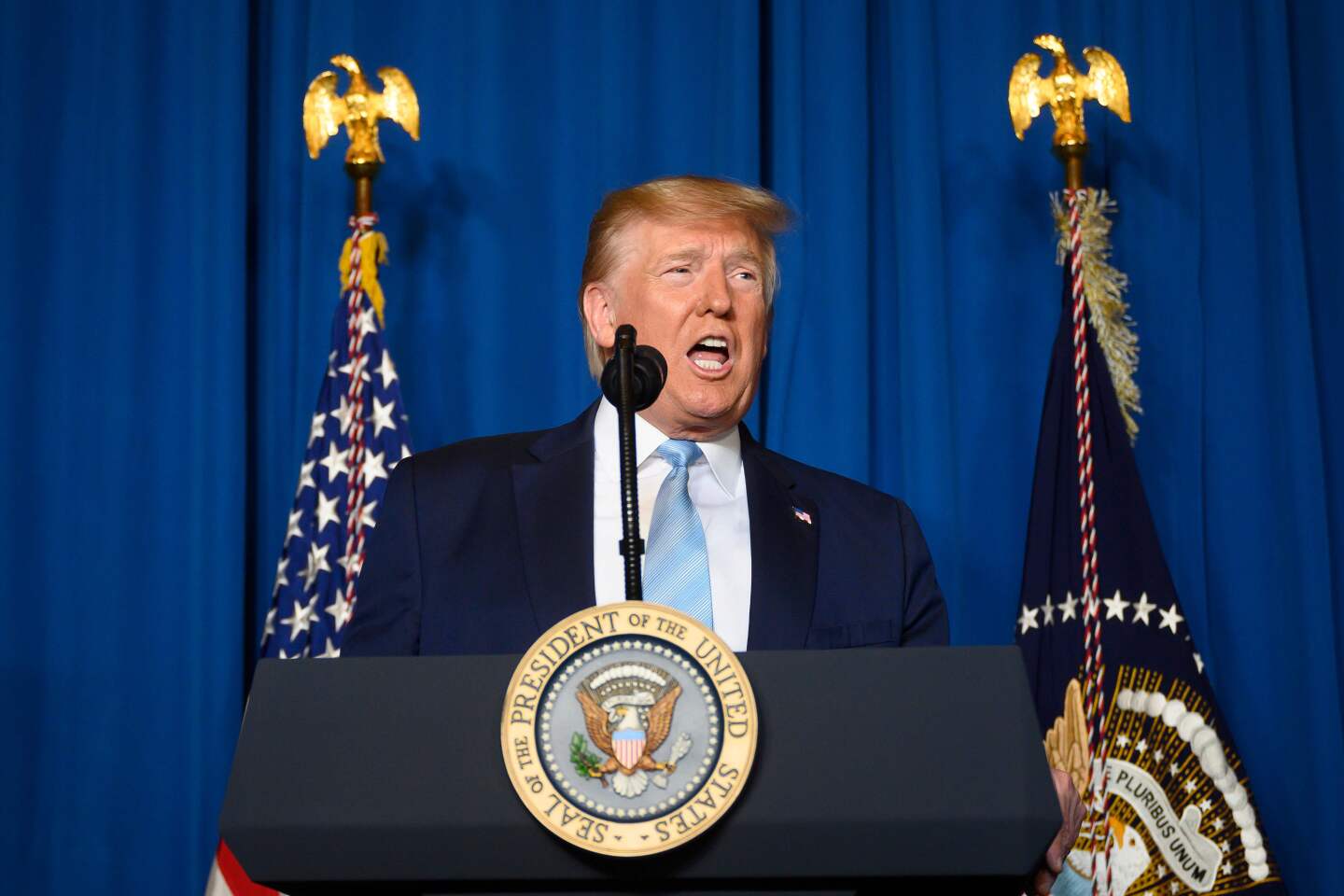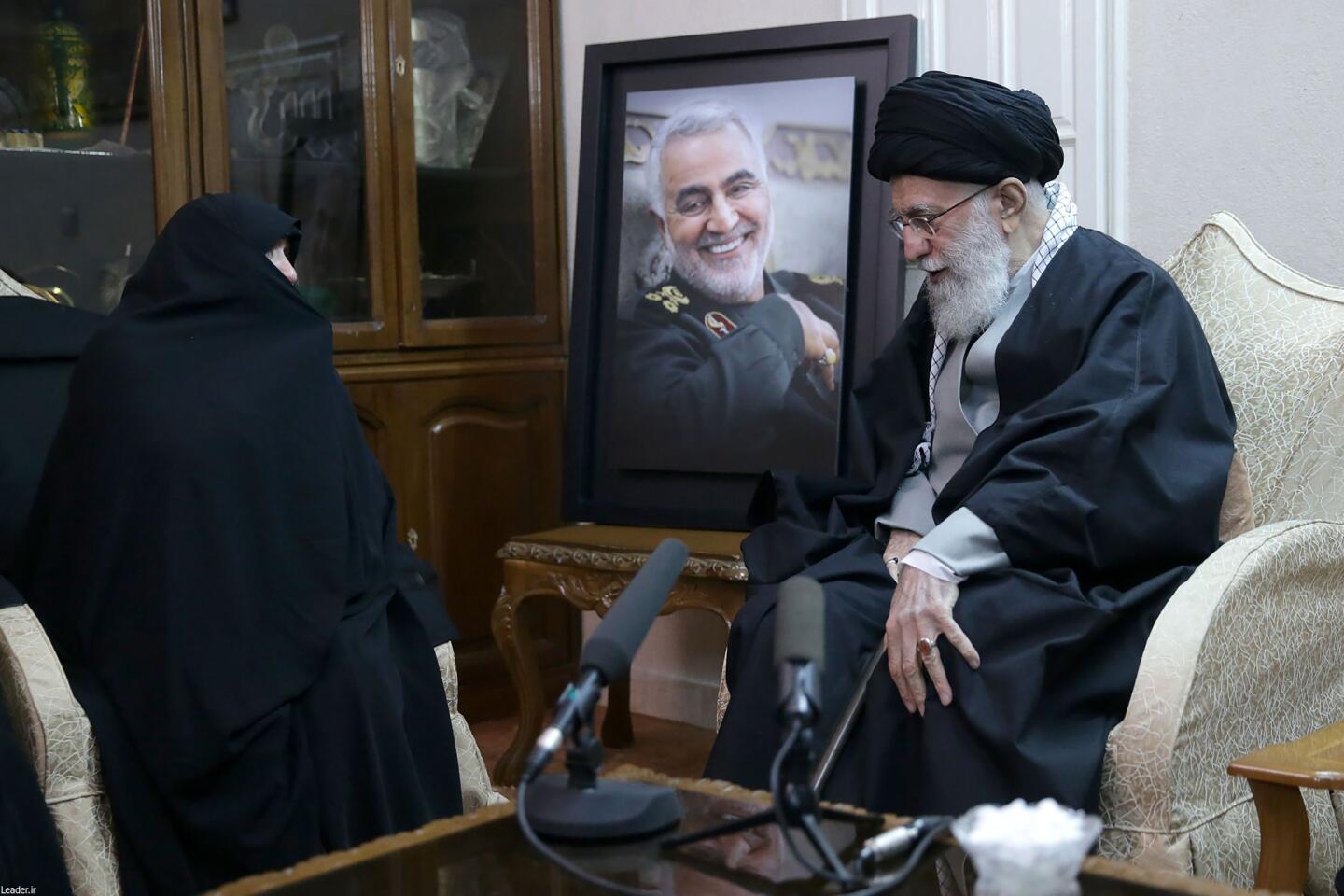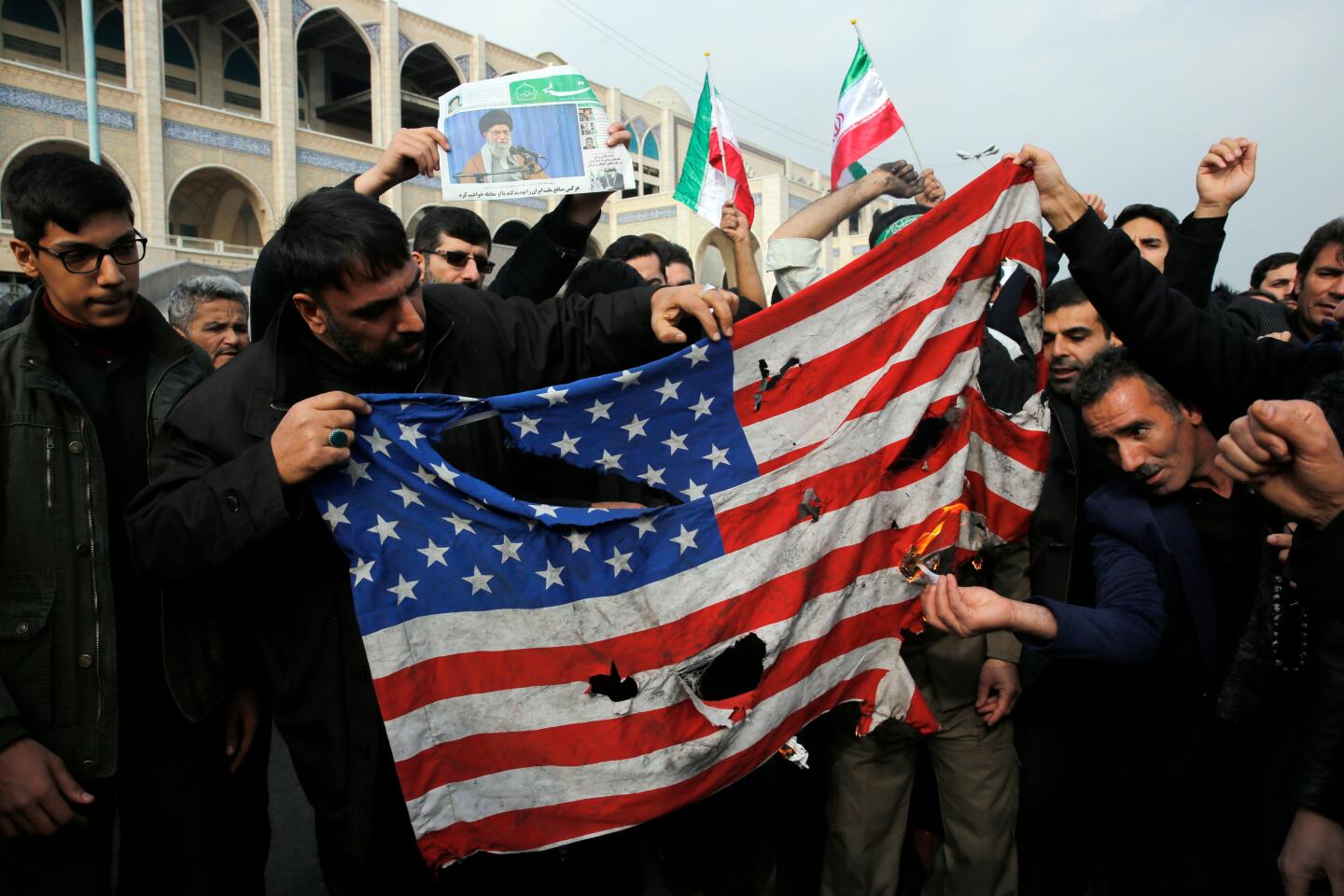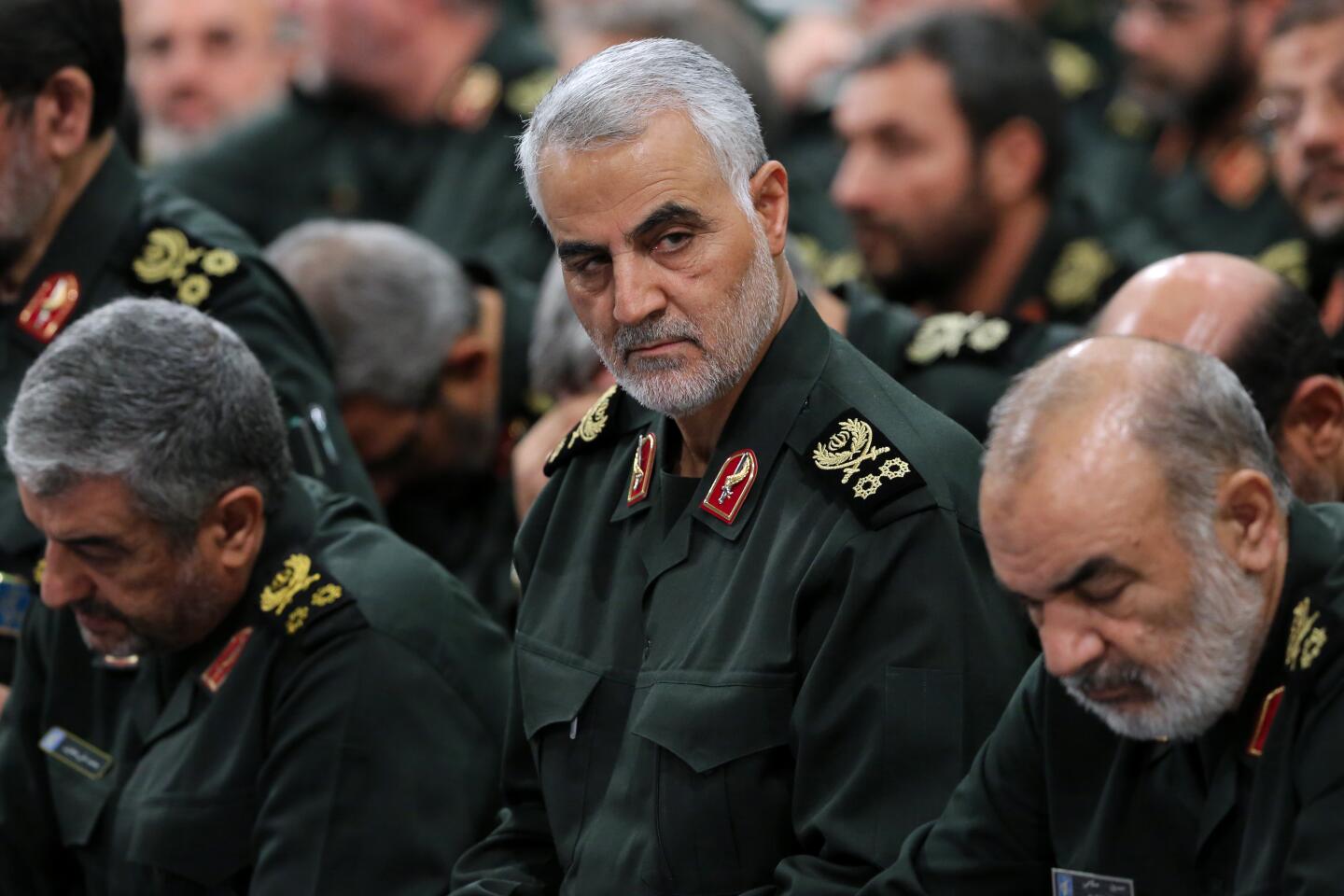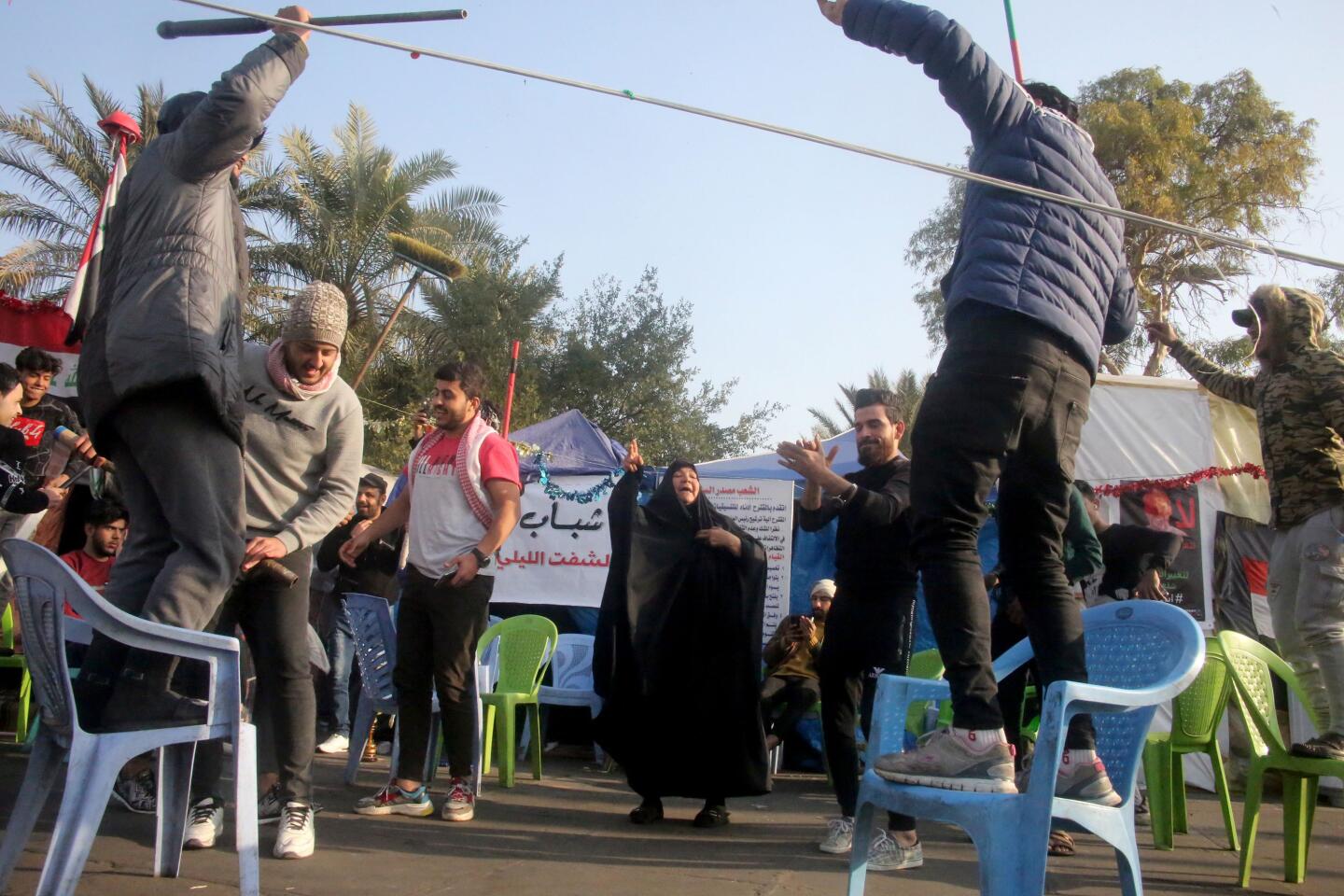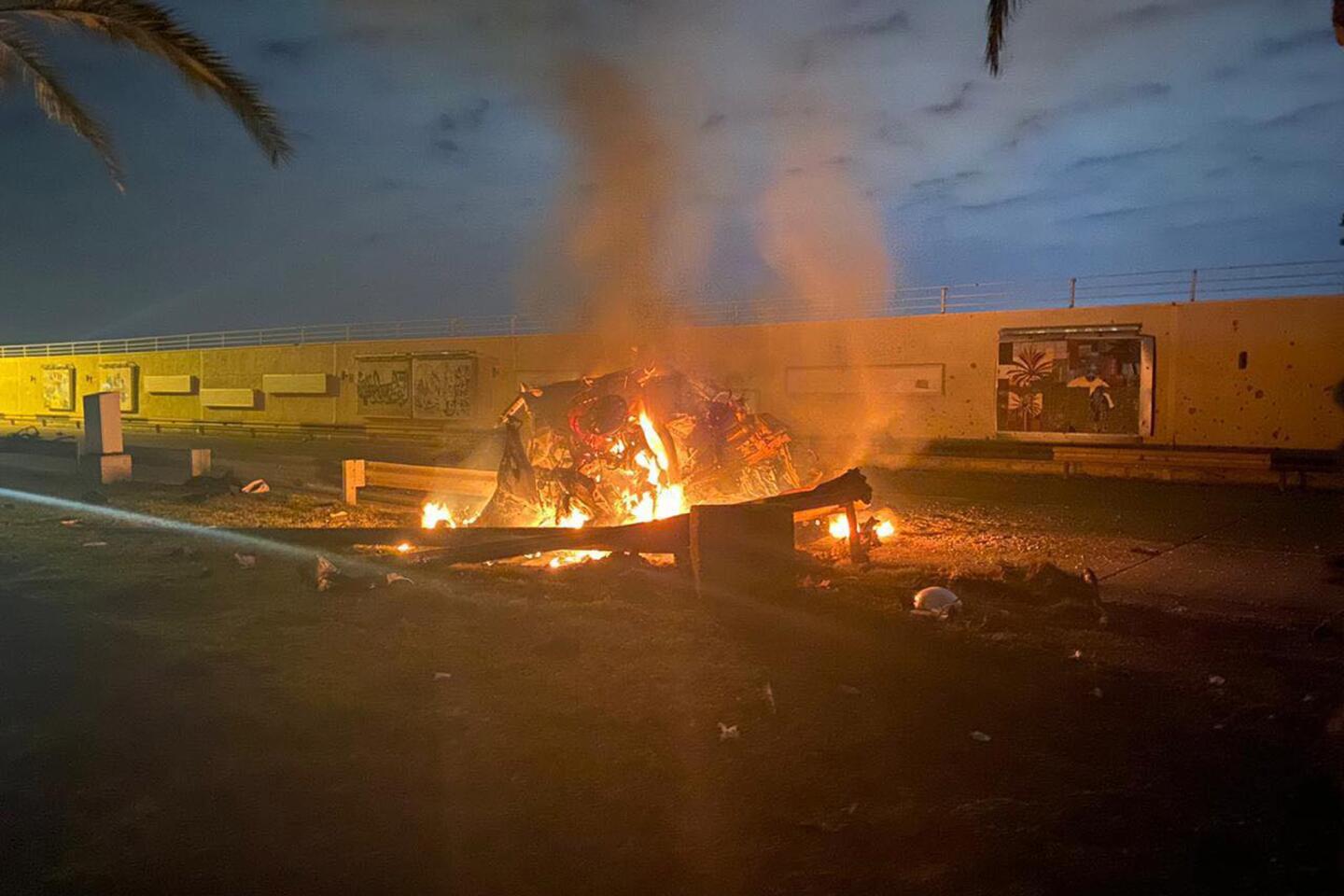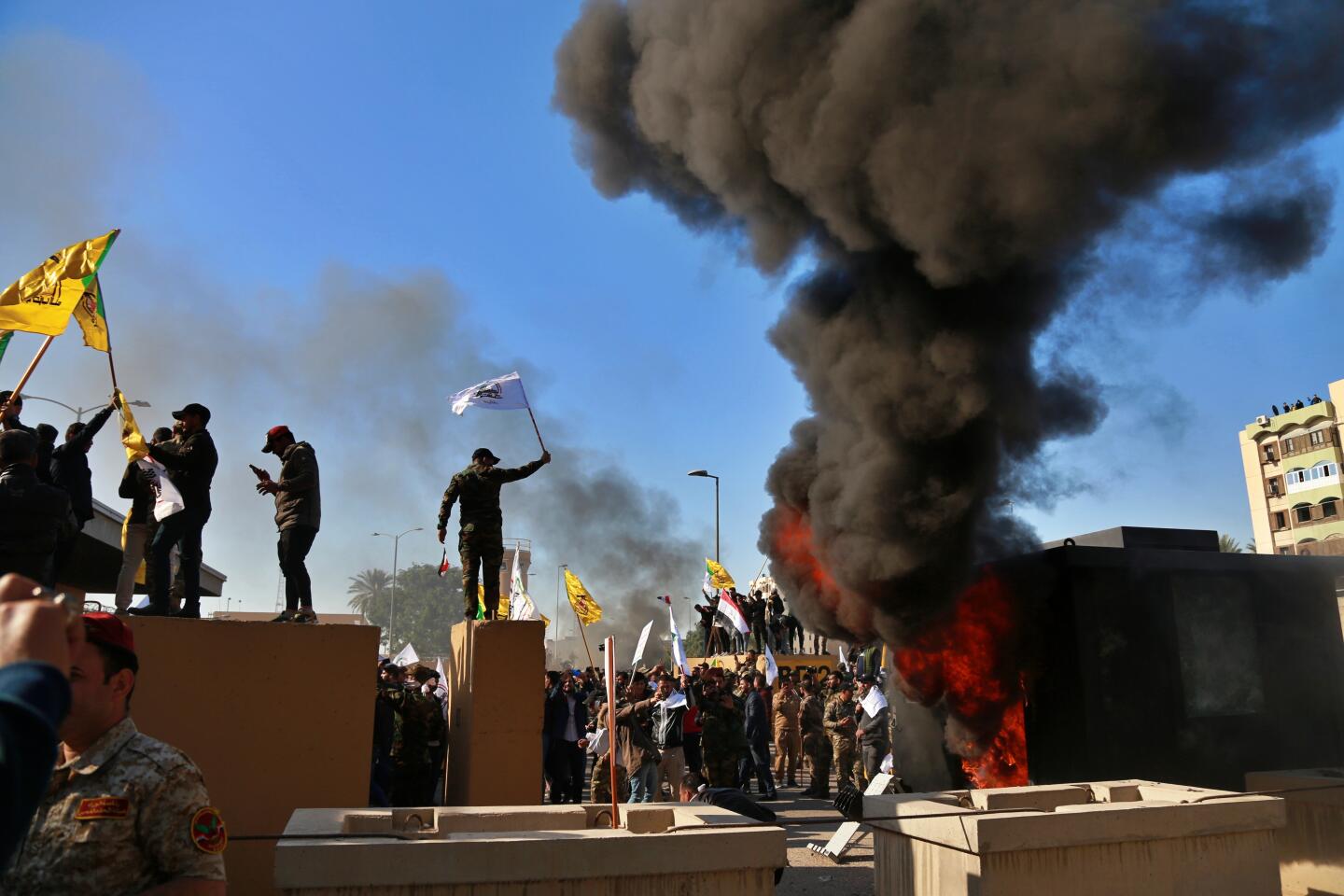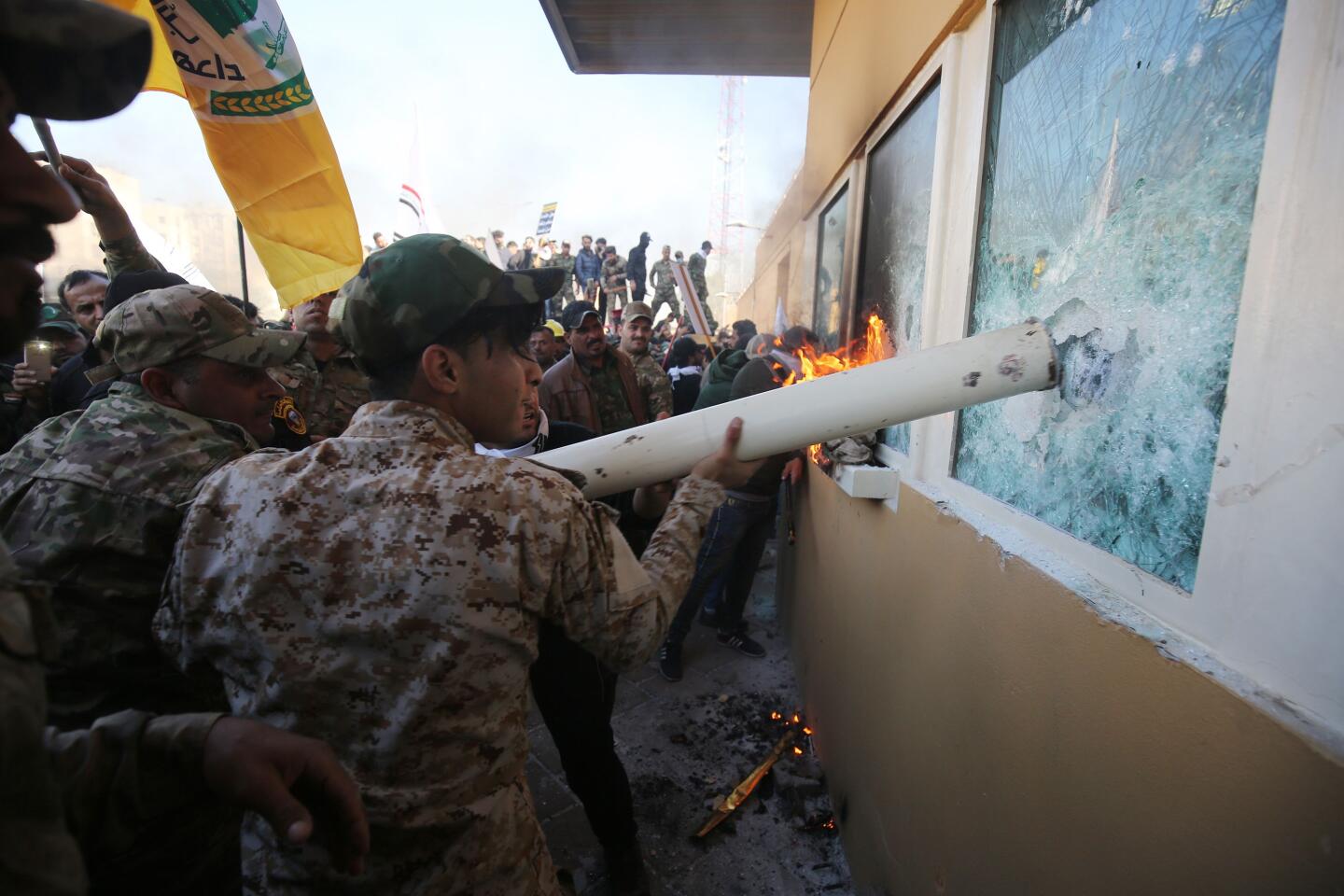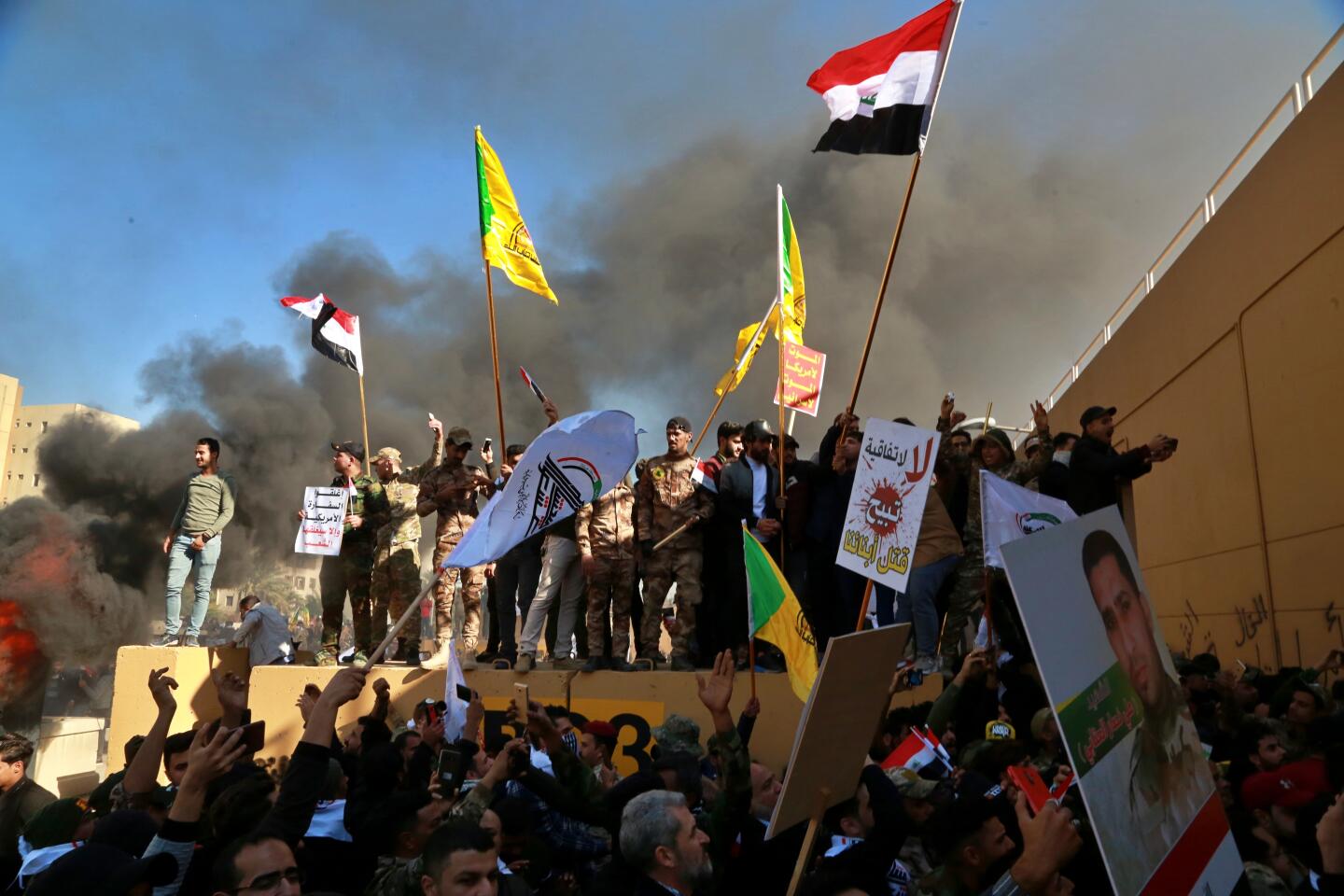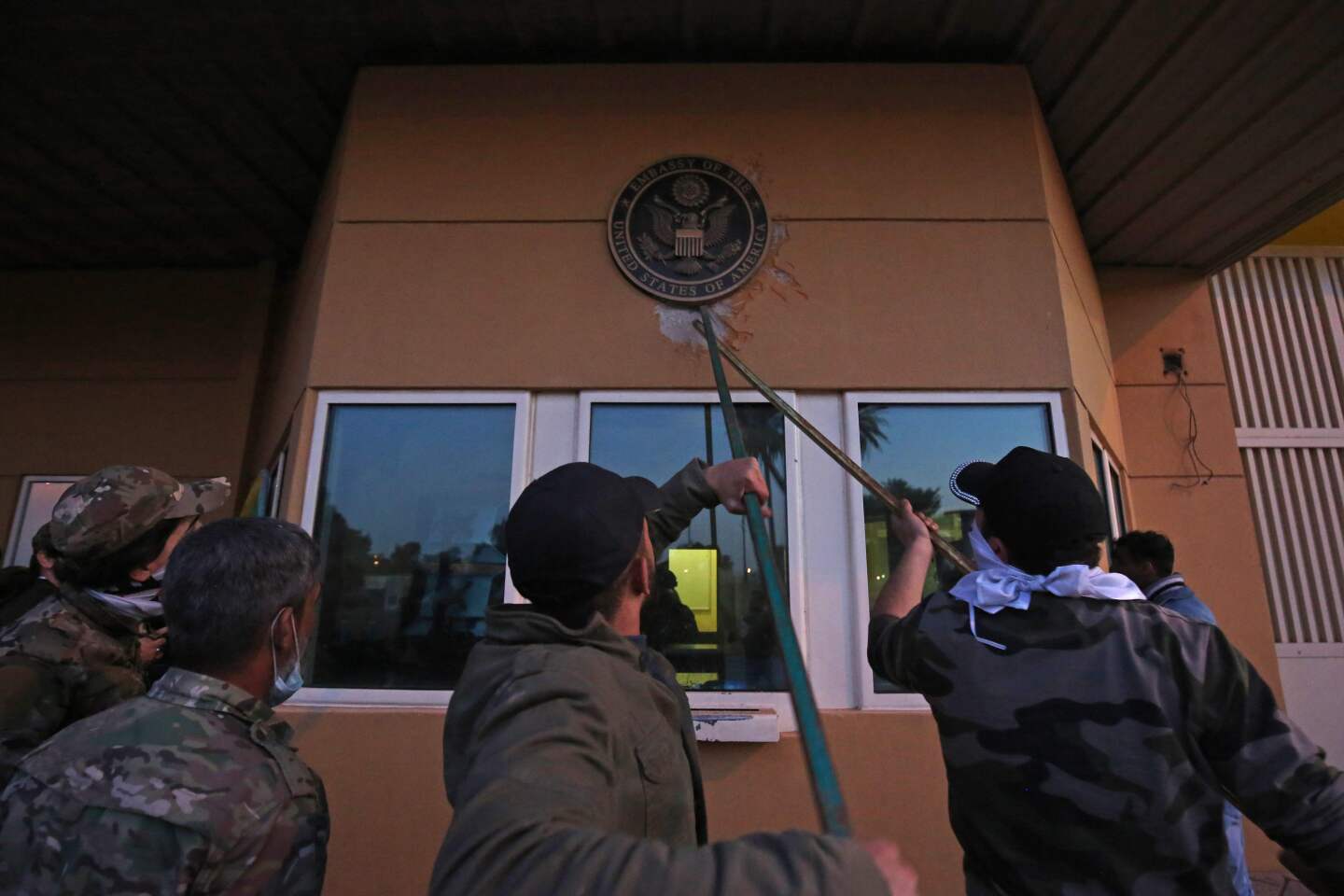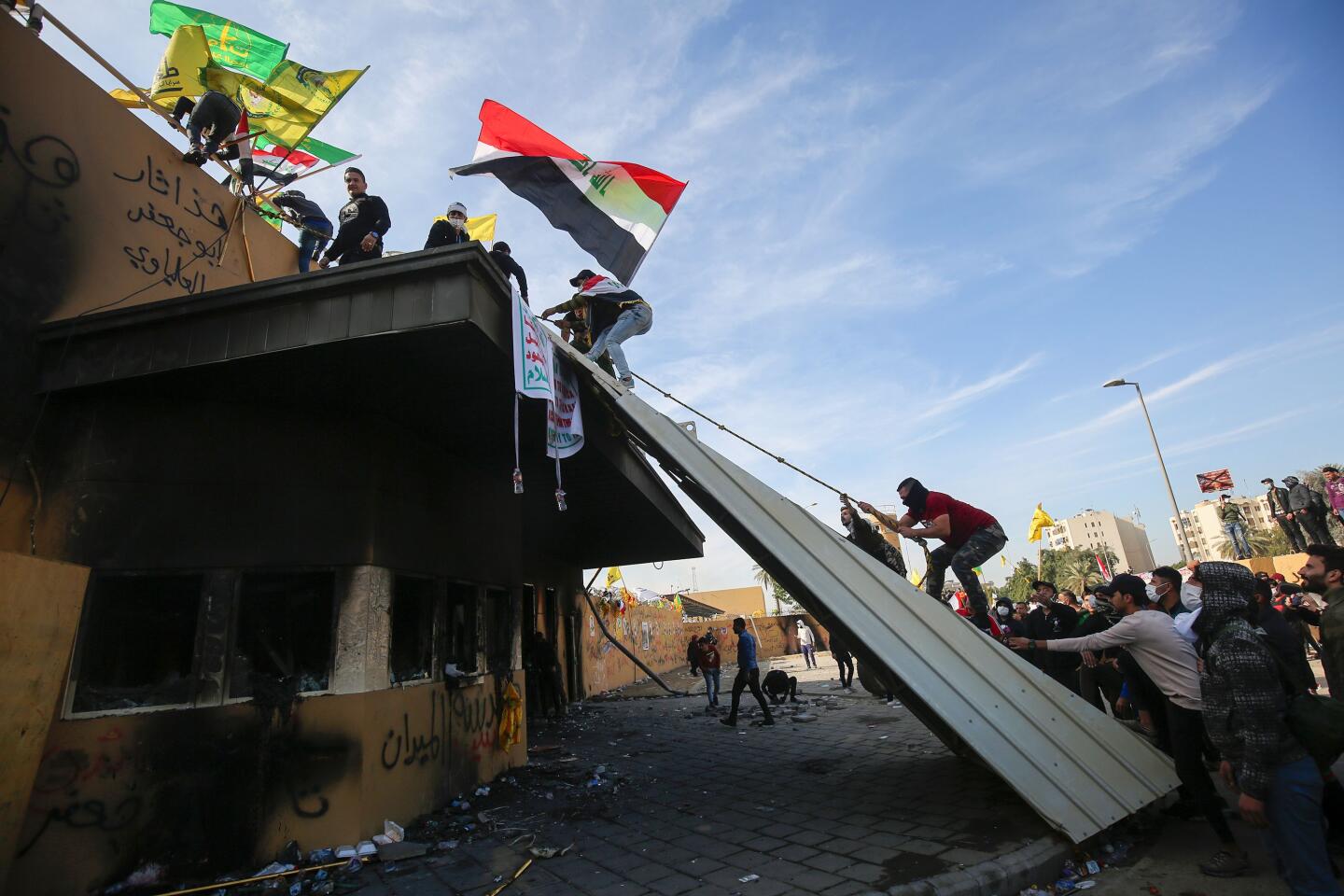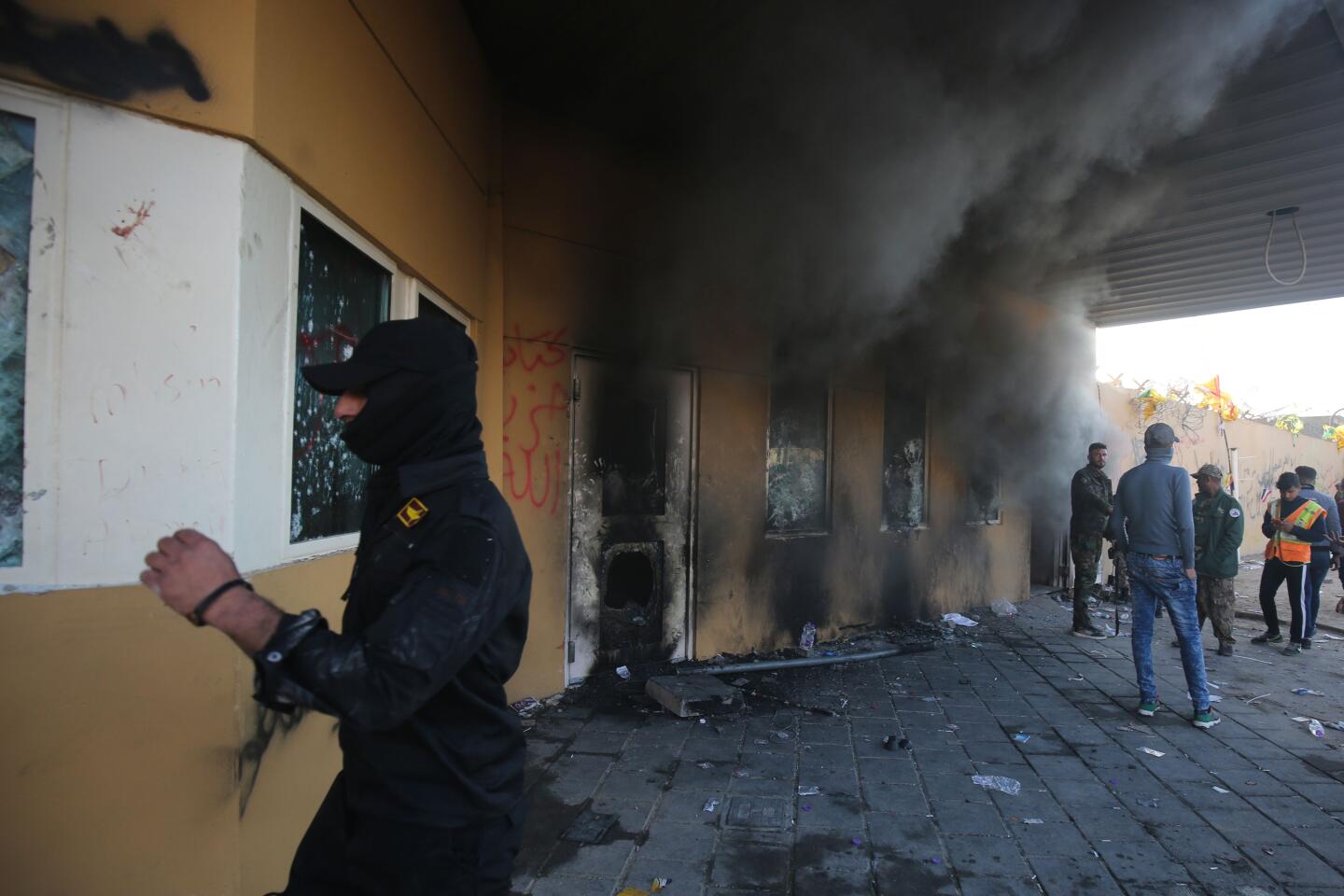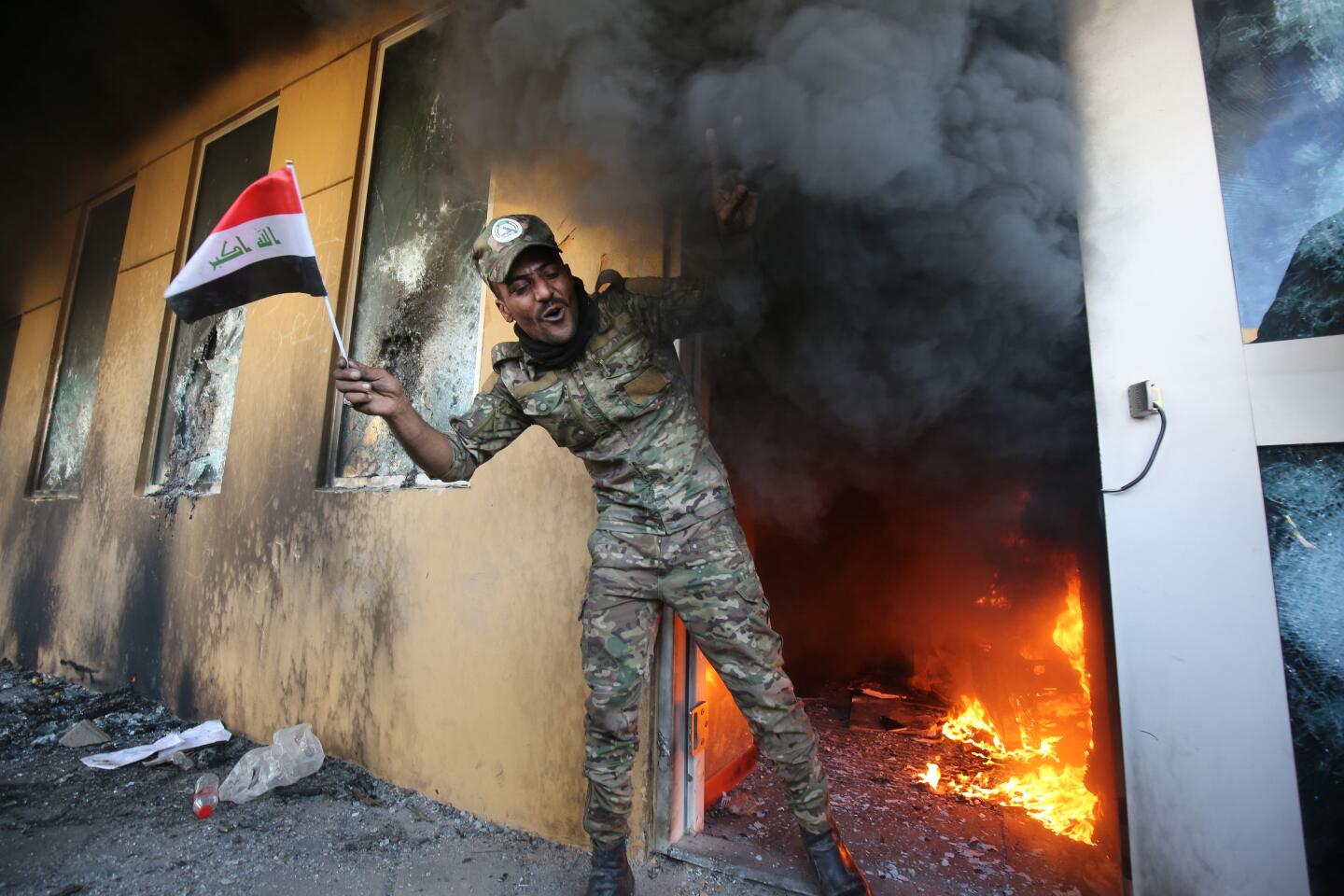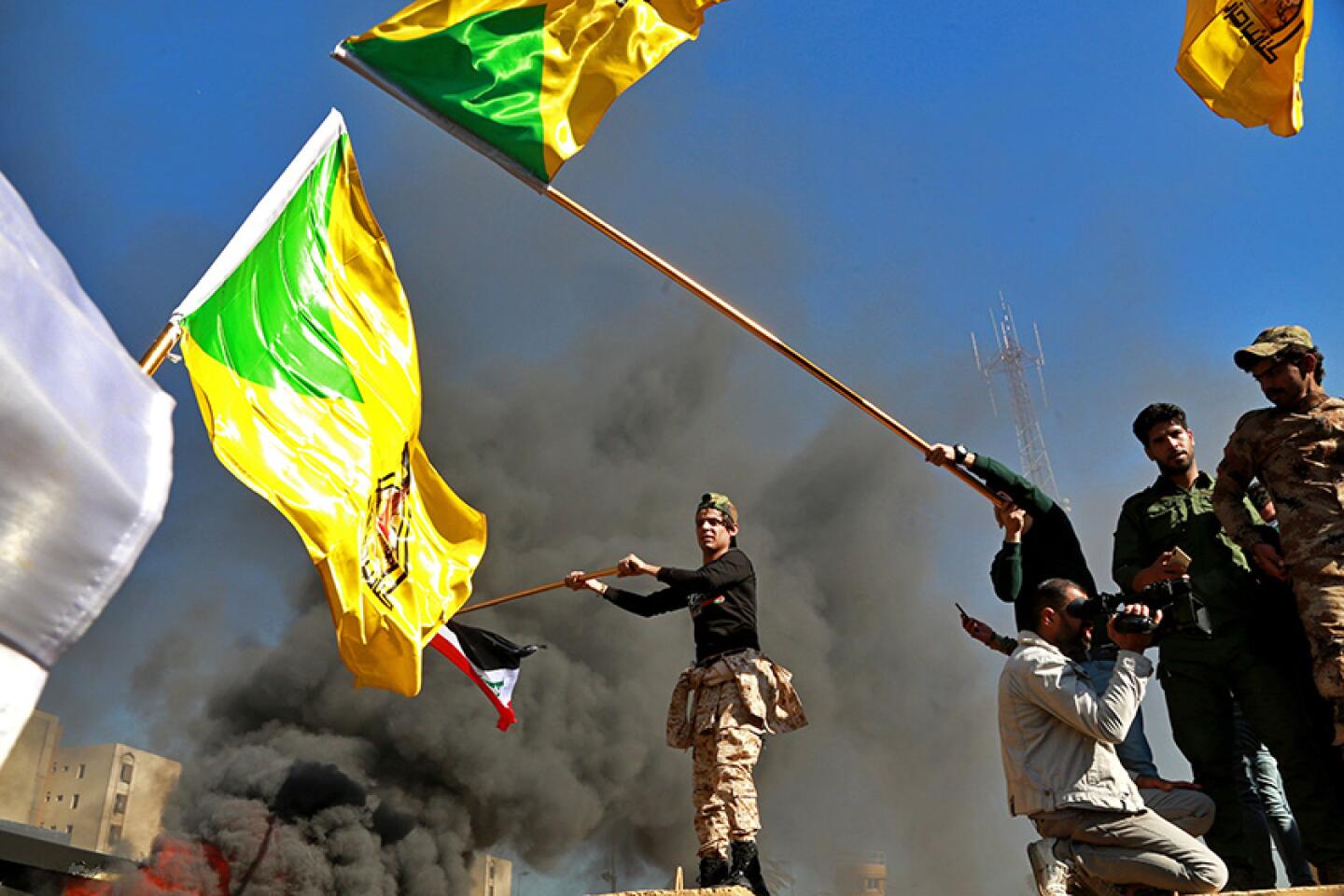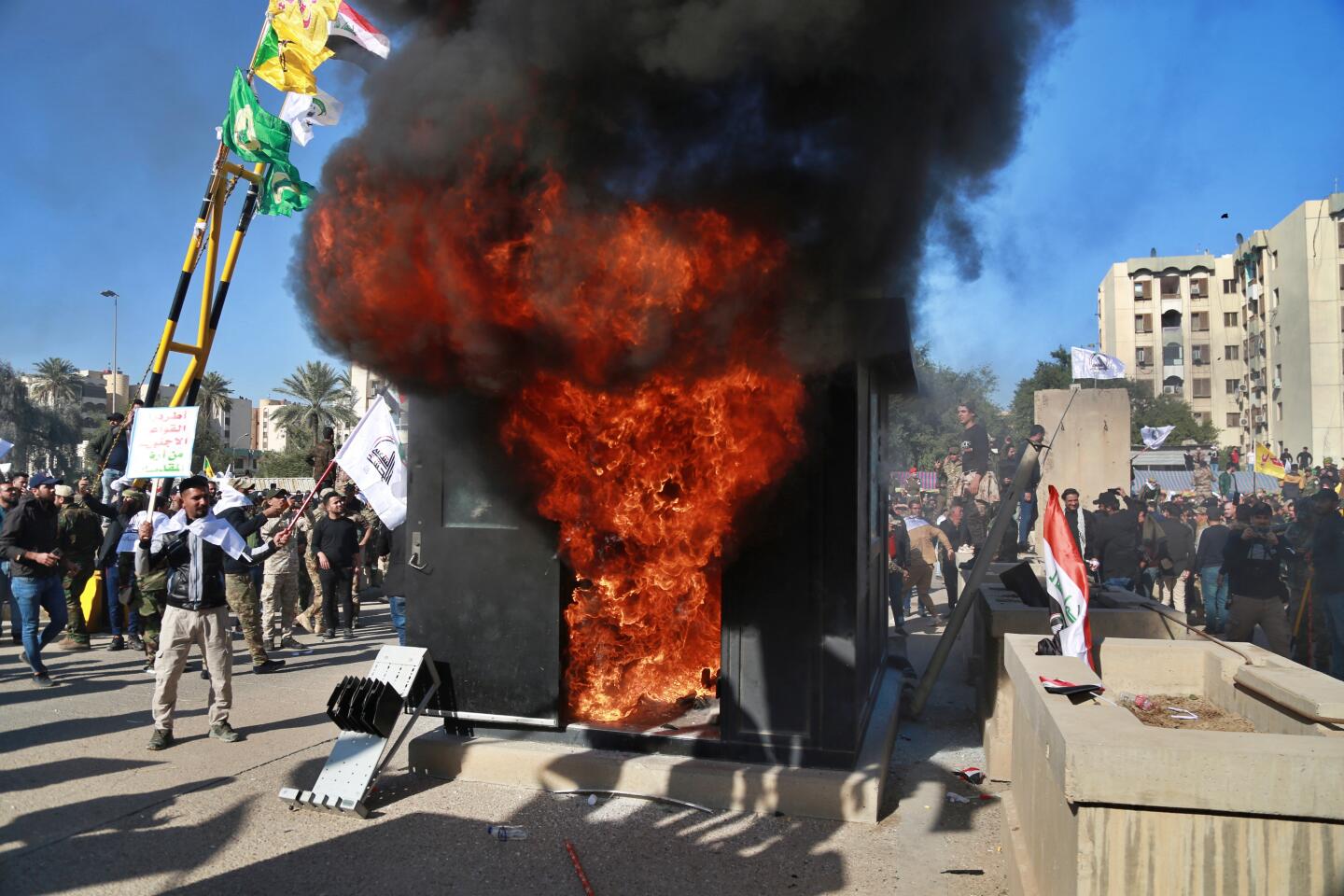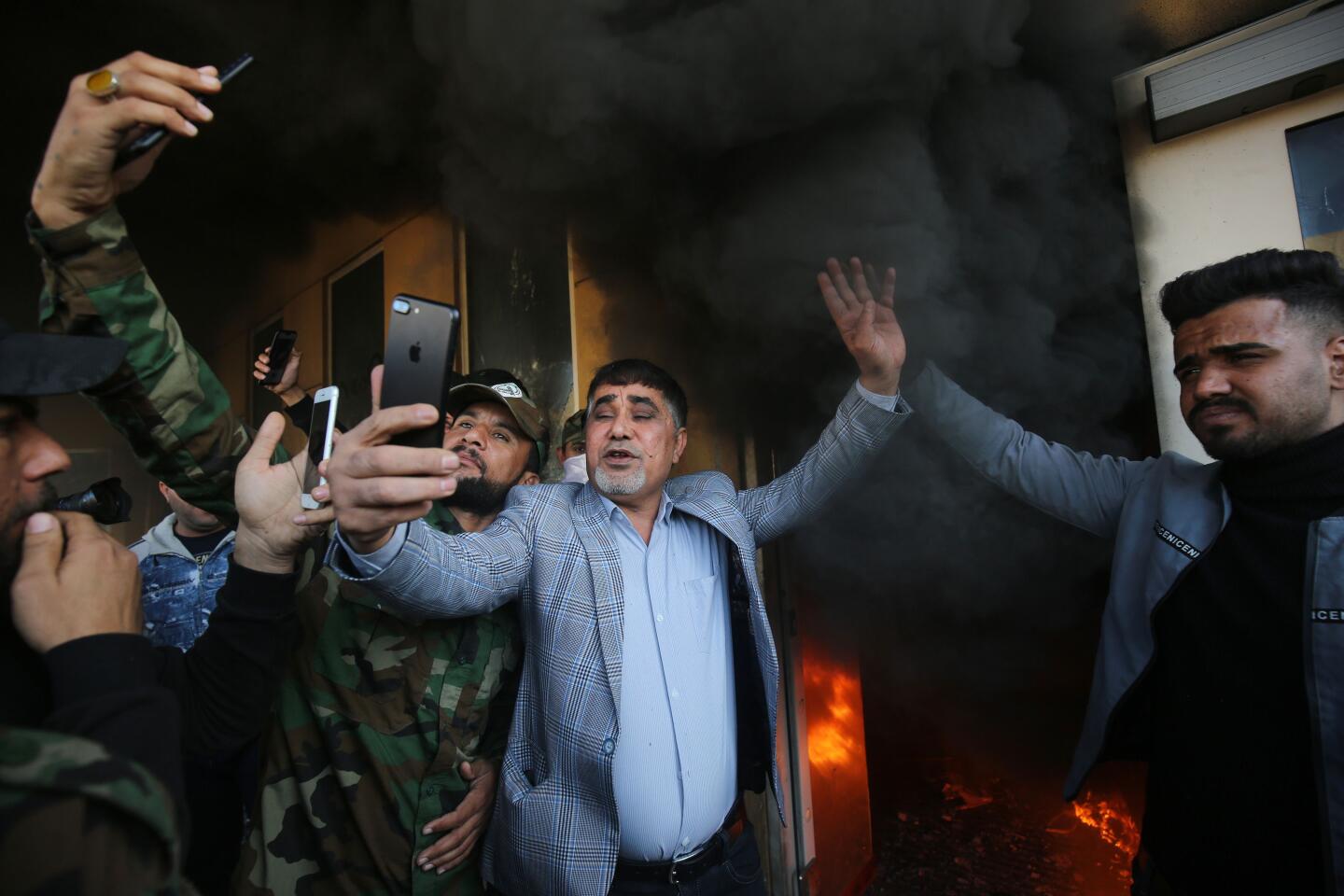News Analysis: Will Iran resume and accelerate its race for nuclear weapons?
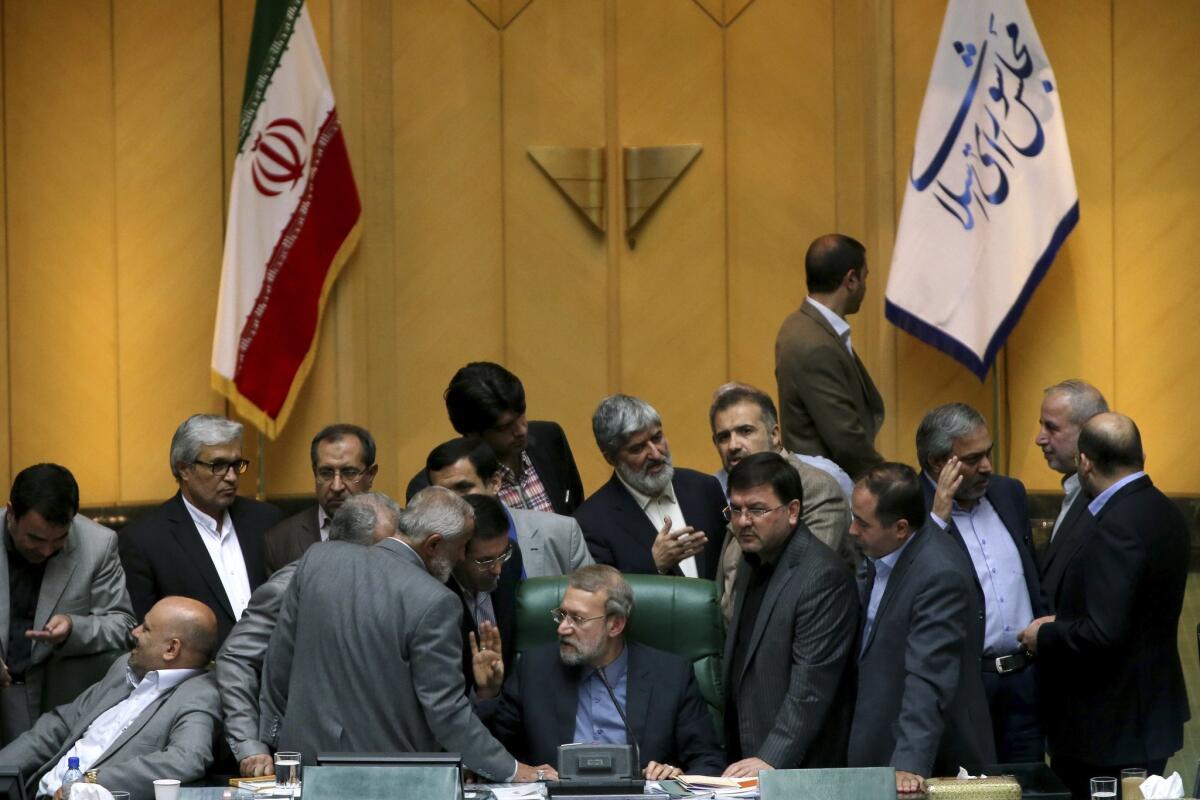
- Share via
WASHINGTON — Iran’s announcement Sunday that it will no longer abide by the most important limits in the landmark 2015 nuclear deal could place Tehran back on the headlong pursuit of nuclear weapons, one of the widening consequences of the U.S. killing of Iranian Gen. Qassem Suleimani.
So far, however, Iran, eager to retain its European allies, has calibrated its response. Iranian officials said they are not walking away completely from the deal — an international pact that President Trump jettisoned in 2018 as he reimposed harsh sanctions on the Islamic Republic that have crippled its economy.
“The deal is not dead,” said Joe Cirincione, president of the Ploughshares Fund, an anti-proliferation group that supports the Iran pact.
Iran even offered a pathway in which it would return to full compliance.
In a statement broadcast on Iranian television as throngs crowded a funeral procession for Suleimani, the government announced it would no longer obey caps on the number of centrifuges it produces for uranium enrichment, nor on the level of purity to which uranium could be enriched.
Limits on stockpiles of enriched material would also be disregarded. Iran had already begun to breach some of these restrictions after Trump unilaterally withdrew from the deal. Sunday’s announcement represents one more step away from the deal.
“Iran will continue its nuclear enrichment with no restrictions,” the statement said, “and based on its technical needs.”
At the same time, however, Iran will continue to allow inspections by the United Nations’ nuclear watchdog agency and cooperate with international monitors.
The violations of the nuclear pact “are reversible upon EFFECTIVE implementation of reciprocal obligations,” Iranian Foreign Minister Mohammad Javad Zarif wrote on Twitter. He was referring to the lifting of economic sanctions imposed by the Trump administration.
The statement gave some analysts hope.
“In the announcement, they go out of their way to say, if the other parties give Iran sanctions relief, that Iran will go back to implementing the deal,” said Ariane Tabatabai, an associate political scientist at Rand Corp. “When you read the announcement, it might seem like a lot. But some of those things were already happening. So it makes it less drastic.”
Wendy Sherman, a former undersecretary of State who led part of the negotiations with Iran, said on Twitter that she was not surprised by Iran’s declaration. “If there is good news in this it is that Iran will return to deal if nuclear sanctions lifted and will not kick out” the International Atomic Energy Agency, she wrote.
Still, as hostile words and military threats escalate between Washington and Tehran, it is becoming increasingly difficult to see how the deal can be salvaged in the long run. And experts fear Iran will now move to expand its broader capability and infrastructure to enable it to break out and build a bomb more quickly.
Currently, it would take Iran about two years to build a nuclear weapon, Cirincione said. “Even if Iran went full speed, it would take it at least a year to enrich enough uranium for the core of one bomb and another year or so to fashion it into an actual weapon,” he said.
Under the deal, which was brokered by President Obama with Russia, China, Britain, Germany and France, Iran agreed to dismantle its nuclear production infrastructure, mothball the centrifuges used to enrich uranium, disable its plutonium-producing heavy-water reactor and get rid of nearly its entire stockpile of enriched uranium. In exchange, Iranian assets that had been frozen overseas were released and sanctions were lifted that would allow Iran access to banking systems and oil markets.
According to the International Atomic Energy Agency, the U.N. watchdog, Iran was in compliance on most of the requirements until Trump withdrew from the deal.
The administration said the deal was fatally flawed and did not go far enough because it failed to include other Iranian activities in the region, such as its support of militants in Yemen, Lebanon and Syria. It launched what it called a “maximum pressure” campaign to isolate the country diplomatically and cripple it economically.
Secretary of State Michael R. Pompeo and other senior U.S. officials have said they remain willing to talk to the Iranian government, but only on their own terms.
“Meet our diplomacy with diplomacy, and not with military force,” a senior State Department official said late last week, briefing reporters on the condition of anonymity in keeping with administration protocol. “The regime is not interested in that, and they’re paying the price for it. … The offramp has been there for three years. The Iranians keep rejecting it.”
Critics say Trump’s lack of coherent strategy, unpredictability and often erratic behavior also impede negotiations that might ease hostilities or strike a new nuclear deal.
For some administration officials, this has been their goal all along: provoke Iran relentlessly to force it to walk away from the deal. That would oblige Tehran’s European allies to once and for all give up their efforts to salvage the deal and to reimpose economic sanctions, the way Trump already did.
Iran’s announcement Sunday indicates it is still holding out hope that Europeans will demonstrate their commitment to the nuclear deal and support Tehran, said Ehsan Ejazi, a Tehran-based researcher at the Center for Scientific Research and Middle East Strategic Studies. But ordinary citizens and some politicians are less hopeful and believe that the Suleimani killing will complicate matters, he said.
“Suleimani was very popular among Iranians,” Ejazi said from Tehran. “By killing him, Trump has completely isolated reformists in Iran. Now the nationalist sentiment is being expressed by many.”
More to Read
Get the L.A. Times Politics newsletter
Deeply reported insights into legislation, politics and policy from Sacramento, Washington and beyond. In your inbox three times per week.
You may occasionally receive promotional content from the Los Angeles Times.
